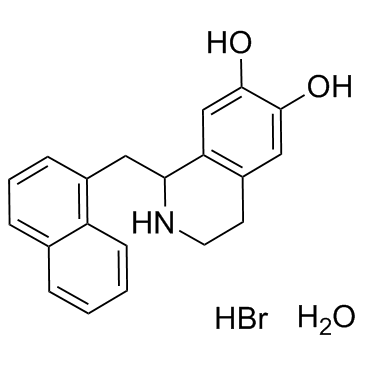Angiotensin Receptor
The angiotensin receptors are seven-membrane G-protein-coupled receptors. They mediate the cardiovascular and other effects of angiotensin II which is a bioactive peptide of the renin–angiotensin system.
Products for Angiotensin Receptor
- Cat.No. Product Name Information
-
GA20291
(Sar¹)-Angiotensin II
(Sar¹)-Angiotensin II, an analogue of Angiotensin II, is a specific agonist of angiotensin AT1 receptor.
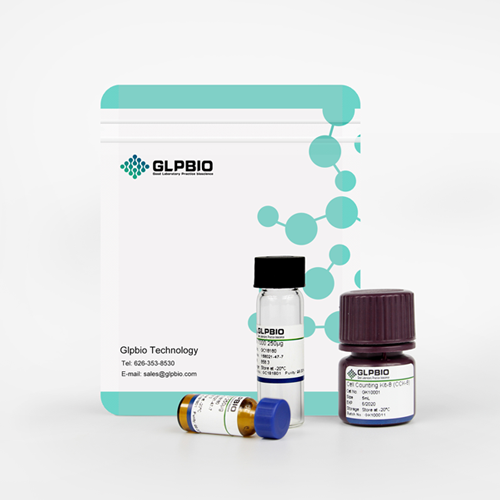
-
GC17757
1H-1-ethyl Candesartan Cilexetil
selective angiotensin II type 1 receptor (AT1) antagonist
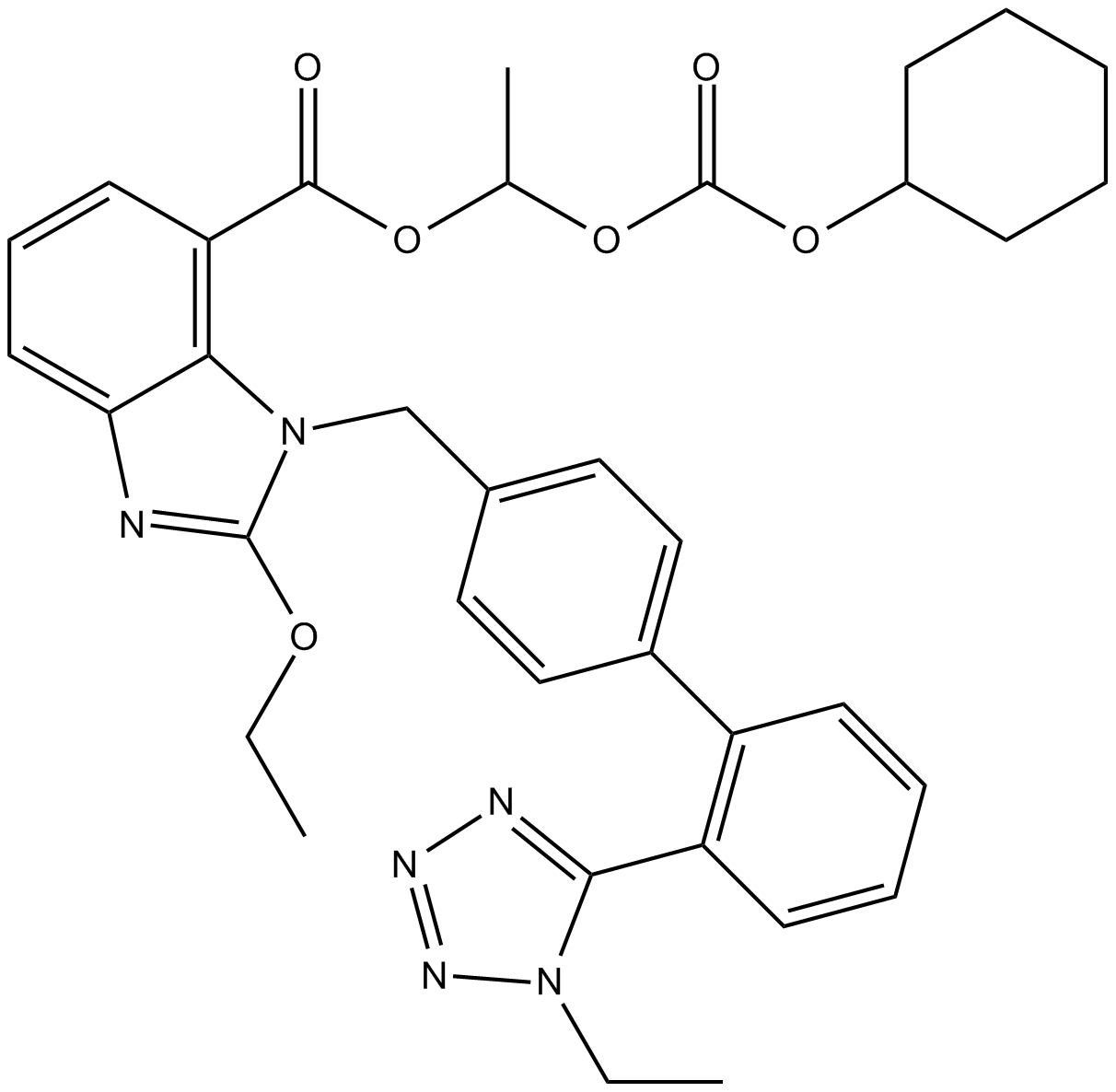
-
GC14445
2-Ethyl-5,7-dimethyl-3H-imidazo[4,5-b]pyridine
nonpeptidic angiotensin II receptor antagonist
![2-Ethyl-5,7-dimethyl-3H-imidazo[4,5-b]pyridine Chemical Structure 2-Ethyl-5,7-dimethyl-3H-imidazo[4,5-b]pyridine Chemical Structure](/media/struct/GC1/GC14445.png)
-
GC11004
A 779
angiotensin-(1-7)/ Mas receptor antagonist
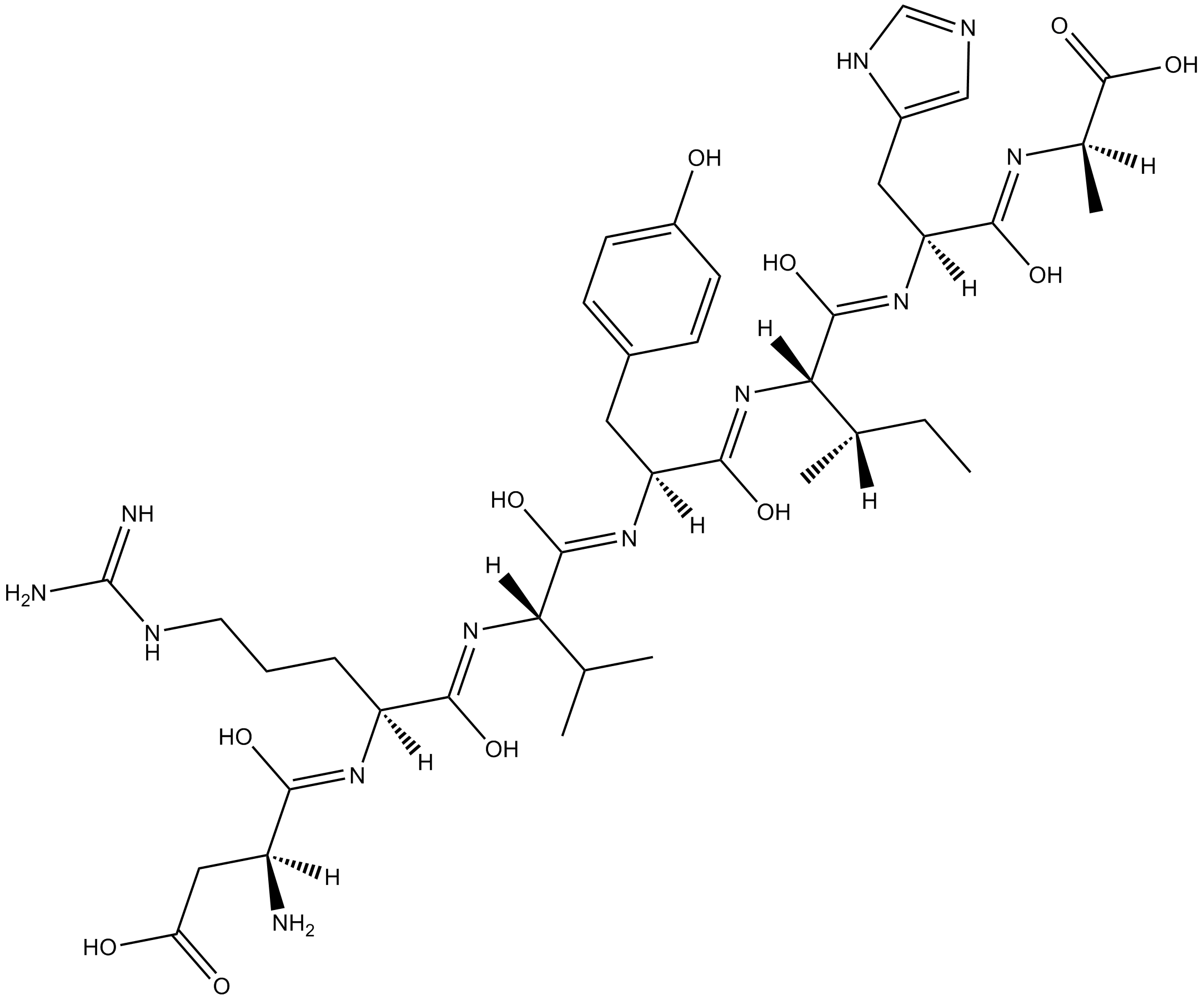
-
GC32674
A81988 (Abbott81988)
A81988 (Abbott81988) is a potent, competitive, non-peptidic antagonist of angiotensin AT1 receptors.
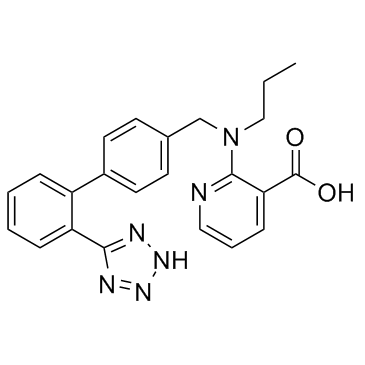
-
GC10146
AHU-377(Sacubitril)
AHU-377(Sacubitril) (AHU-377) is a potent and orally active NEP (neprilysin) inhibitor with an IC50 of 5 nM.
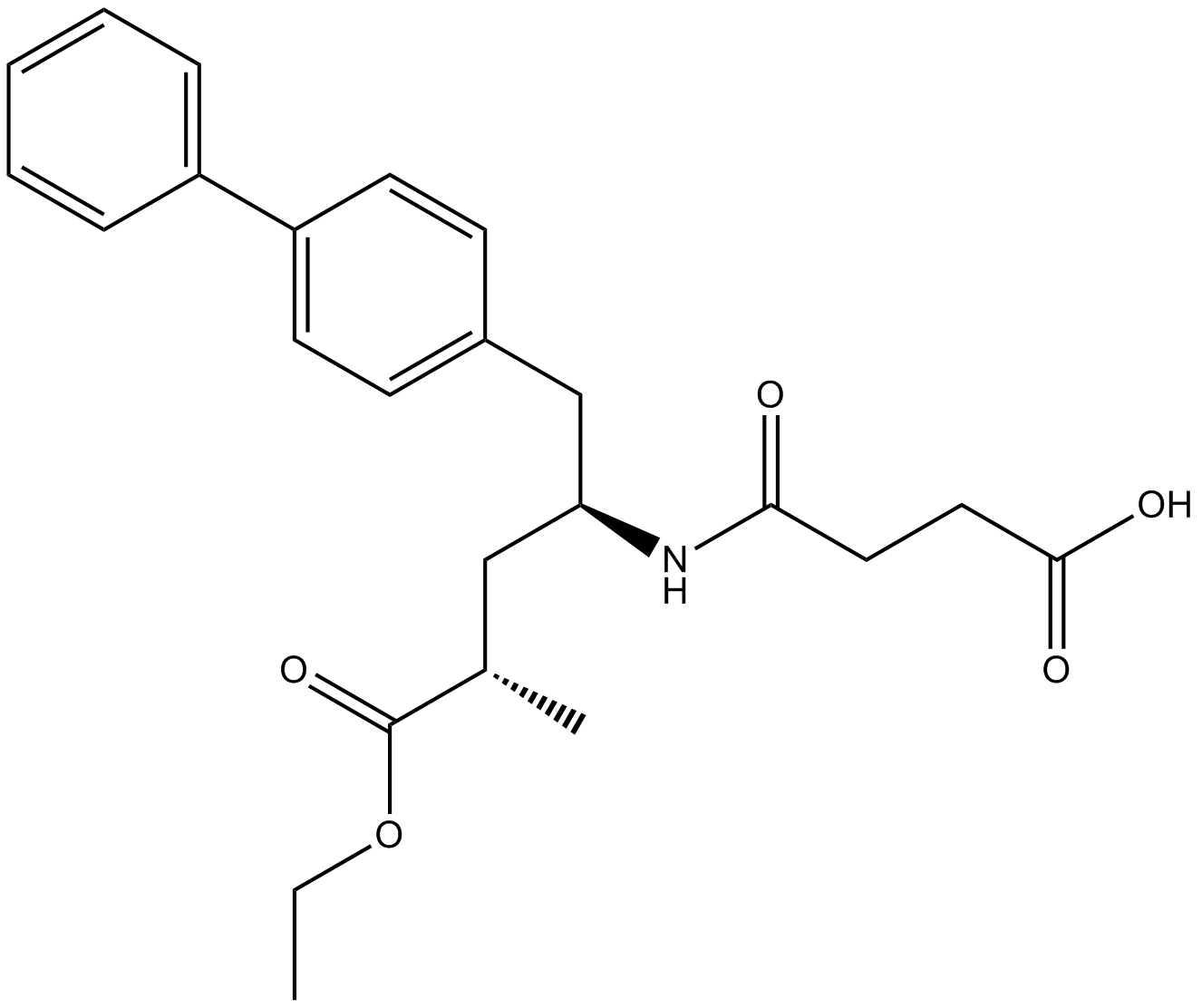
-
GP10077
Angiotensin (1-7)
Ang-(1-7) (H - Asp - Arg - Val - Tyr - Ile - His - Pro - OH) is an endogenous peptide fragment that can be produced from Ang I or Ang II via endo- or carboxy-peptidases respectively[1].
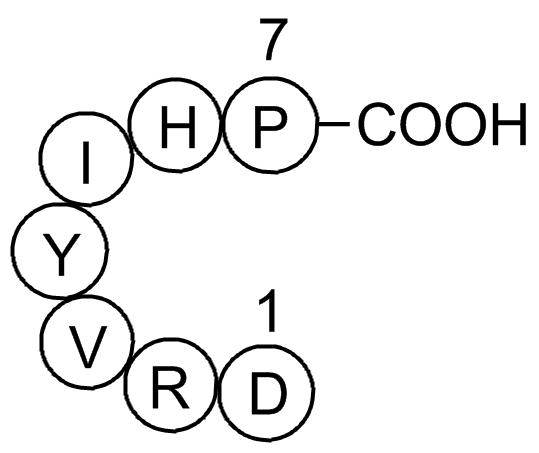
-
GC61496
Angiotensin (1-7) (acetate)
Angiotensin 1-7 (Ang-(1-7)) acetate is an endogenous heptapeptide from the renin-angiotensin system (RAS) with a cardioprotective role due to its anti-inflammatory and anti-fibrotic activities in cardiac cells.
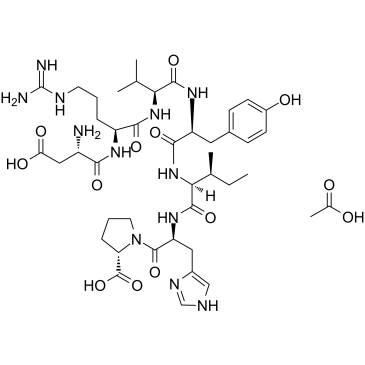
-
GA20760
Angiotensin A (1-7)
Angiotensin A (1-7), a member of the renin-angiotensin system (RAS), a vasoactive peptide, is an endogenous ligand of the G protein-coupled receptor MrgD.

-
GC12671
Angiotensin Fragment 1-7 (acetate)
type 1 angiotensin II receptor agonist
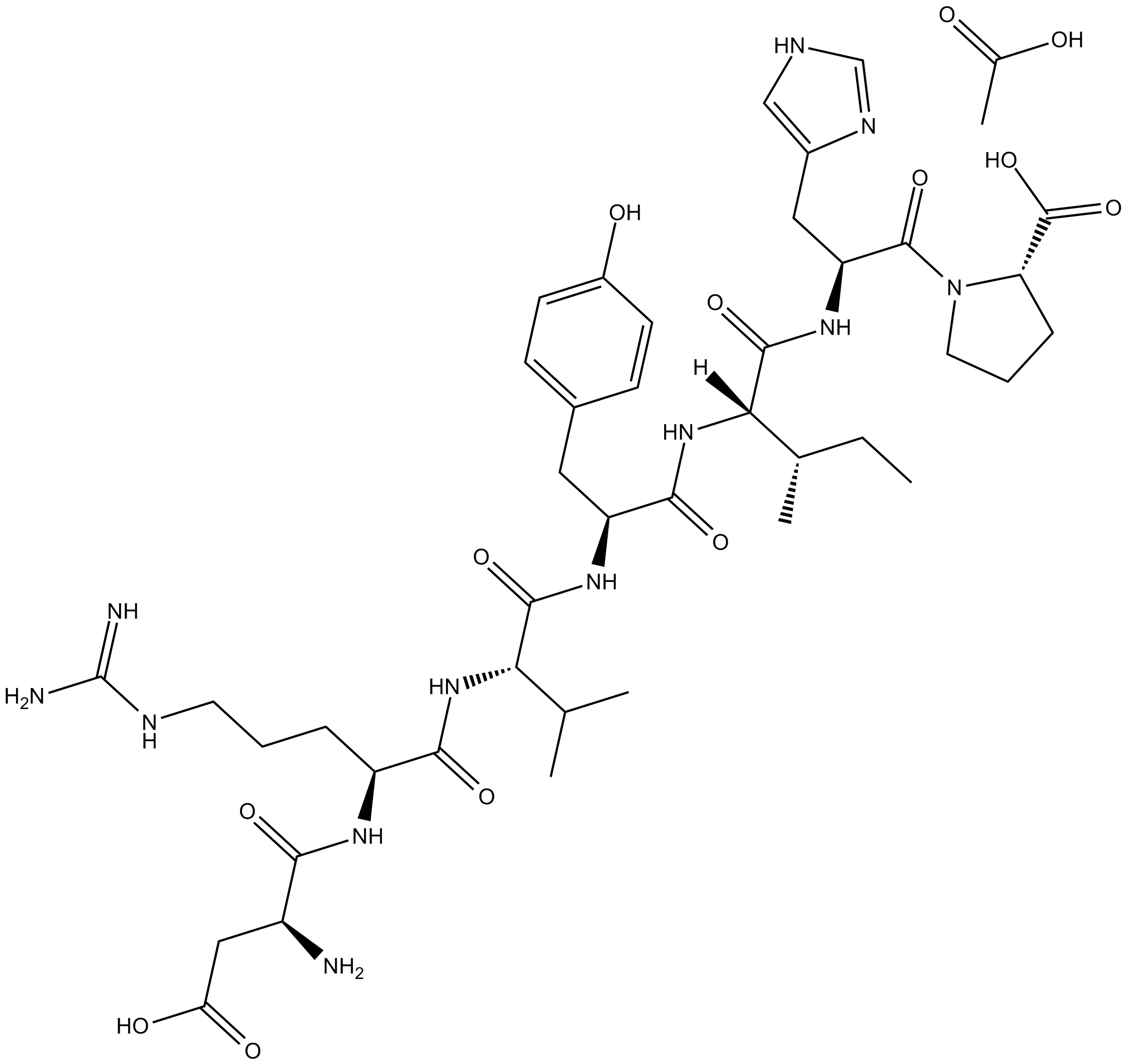
-
GC61952
Angiotensin I/II (1-6) (TFA)
Angiotensin I/II (1-6) TFA contains the amino acids 1-6 and is converted from Angiotensin I/II peptide.
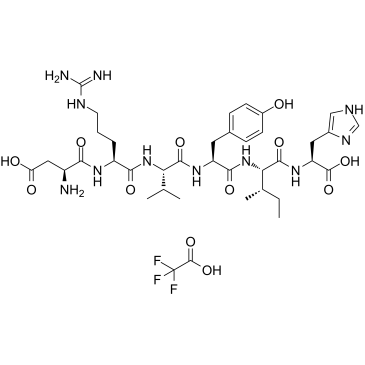
-
GC35351
Angiotensin II (1-4), human
Angiotensin II (1-4), human is an endogenous peptide produced from AT I by angiotensin-converting-enzyme (ACE).
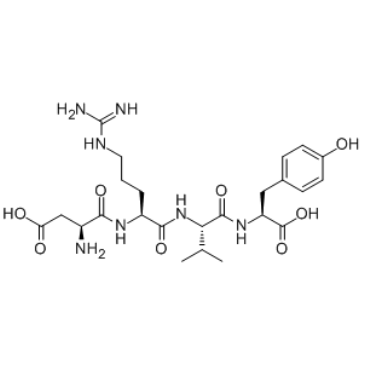
-
GC35352
Angiotensin II (3-8), human
Angiotensin II (3-8), human is a less effective agonist at the angiotensin AT1 receptor.
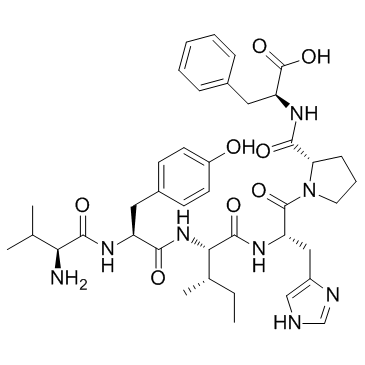
-
GC35353
Angiotensin II (3-8), human TFA
Angiotensin II (3-8), human (TFA) is a less effective agonist at the angiotensin AT1 receptor.
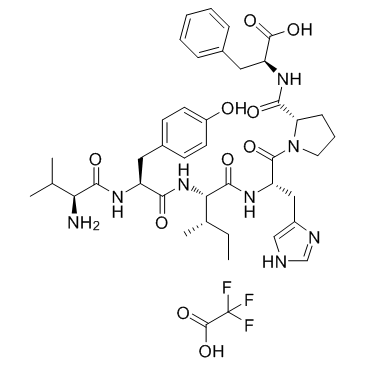
-
GC42810
Angiotensin II (5-8) (human, rat, mouse)
Angiotensin II (5-8) (human, rat, mouse) is an endogenous C-terminal fragment of the peptide vasoconstrictor angiotensin II.

-
GC35354
Angiotensin II 5-valine
Angiotensin II 5-valine is an agonist of angiotensin receptor.
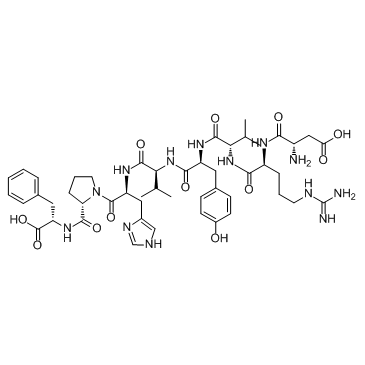
-
GC60584
Angiotensin II human acetate
Angiotensin II human (Angiotensin II) acetate is a vasoconstrictor and a major bioactive peptide of the renin/angiotensin system.
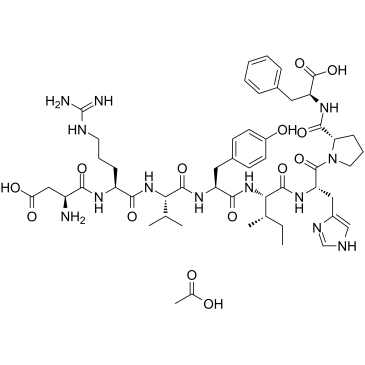
-
GC62844
Angiotensin II human TFA
Angiotensin II human (Angiotensin II) TFA is a vasoconstrictor and a major bioactive peptide of the renin/angiotensin system.
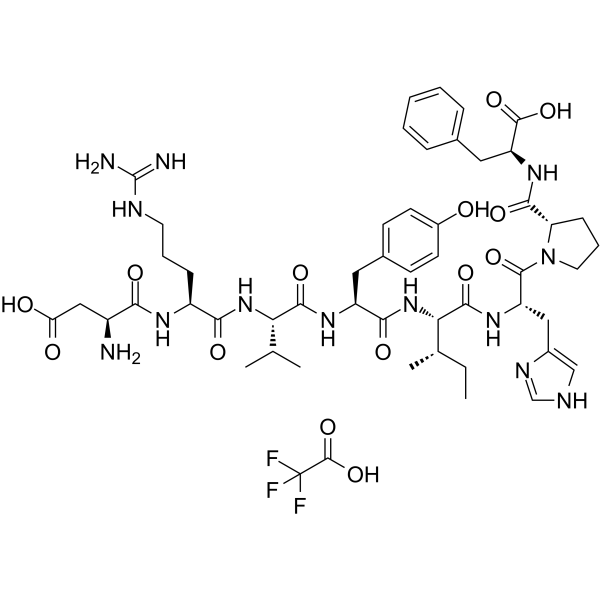
-
GC35355
Angiotensin III
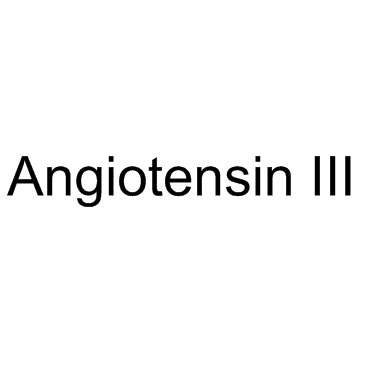
-
GP10110
Angiotensin III (human, mouse)
An agonist at AT1 and AT2 receptors

-
GC35356
Angiotensin III TFA
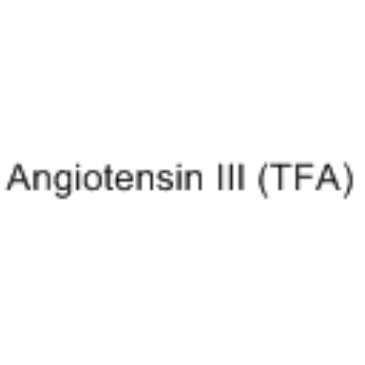
-
GC66025
Angiotensin III, human, mouse TFA
Angiotensin III, human, mouse (TFA) is an angiotensin.
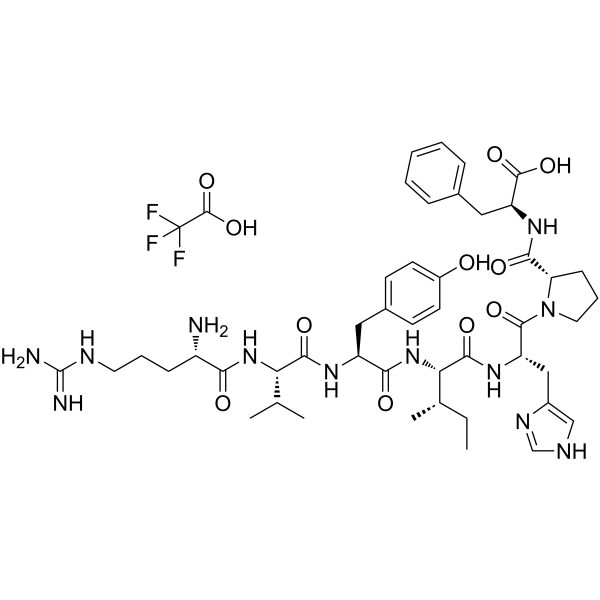
-
GC12065
AVE 0991
AVE 0991 is a Nonpeptide Mimic of the Effects of Angiotensin-(1-7) on the Endothelium.
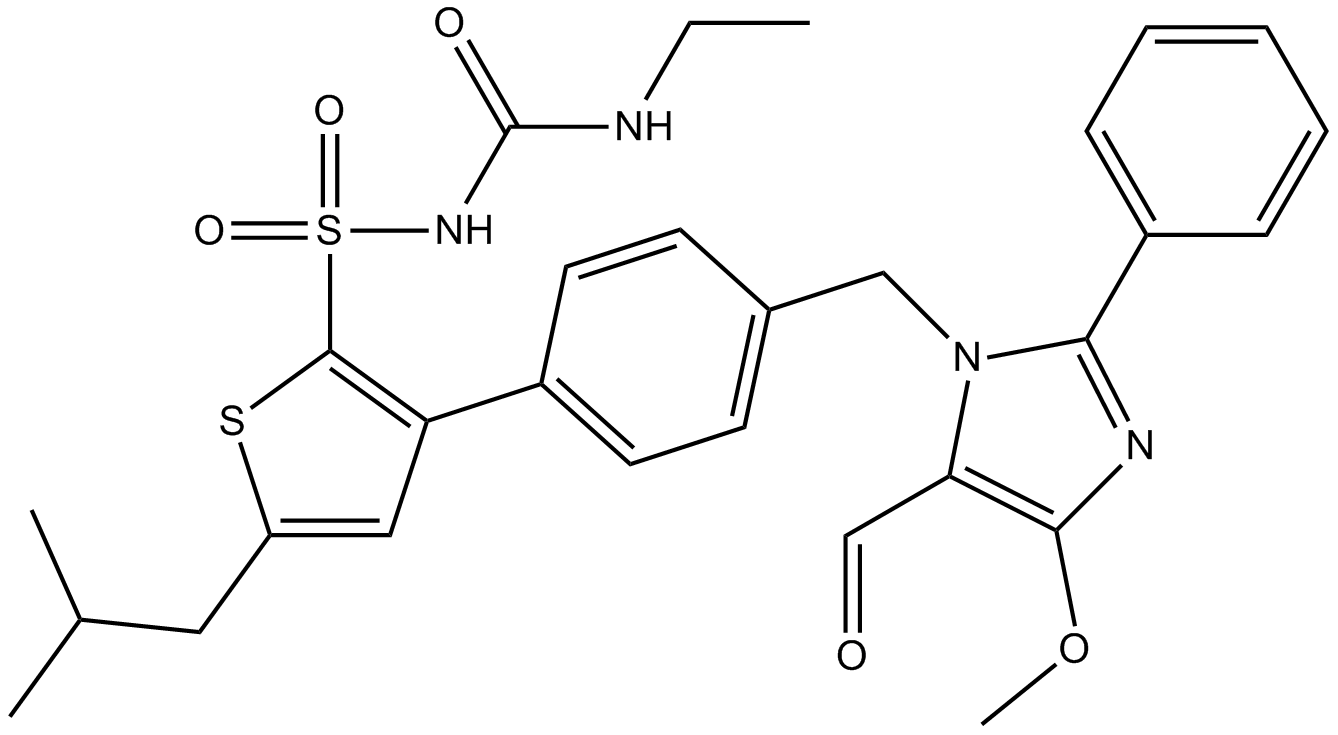
-
GC17686
AVE 0991 sodium salt
Ang-(1-7) receptor Mas agonist
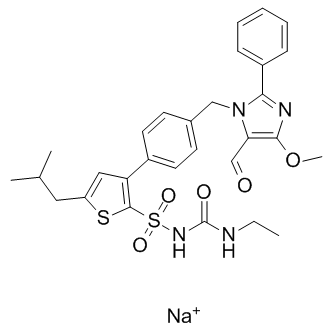
-
GC13277
Azilsartan
Potent angiotensin II type 1 (AT1) receptor inverse agonist
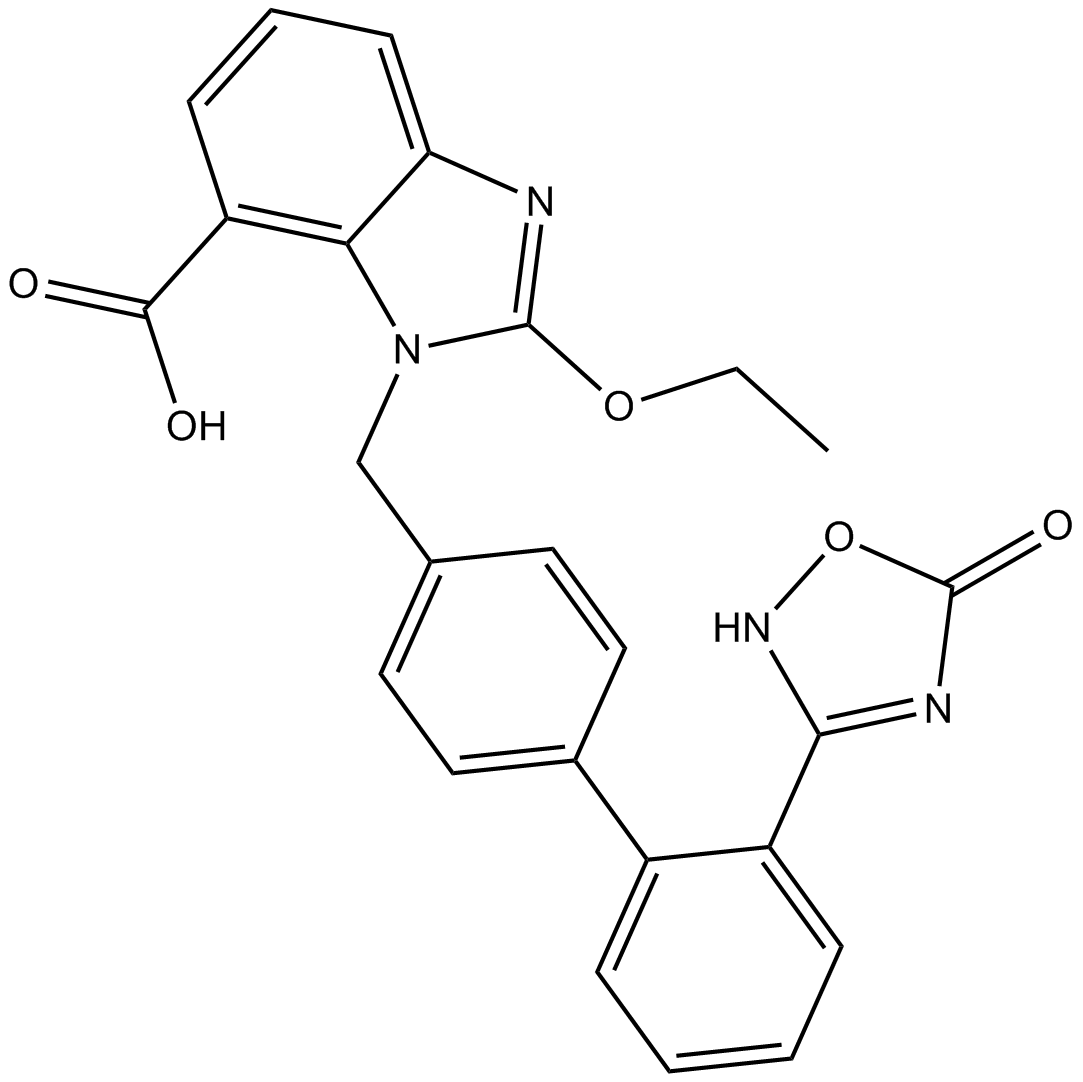
-
GC35452
Azilsartan D5
Azilsartan D5 (TAK-536 D5) is the deuterium labeled Azilsartan(TAK-536), which is a specific and potent angiotensin II type 1 receptor antagonist.
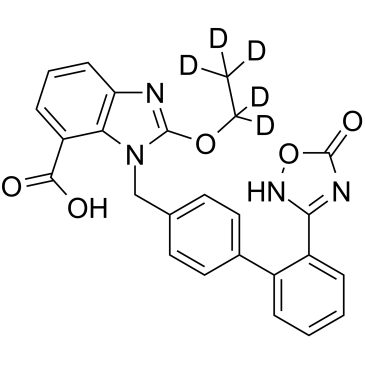
-
GC11407
Azilsartan Medoxomil
Angiotensin II receptor type 1 antagonist
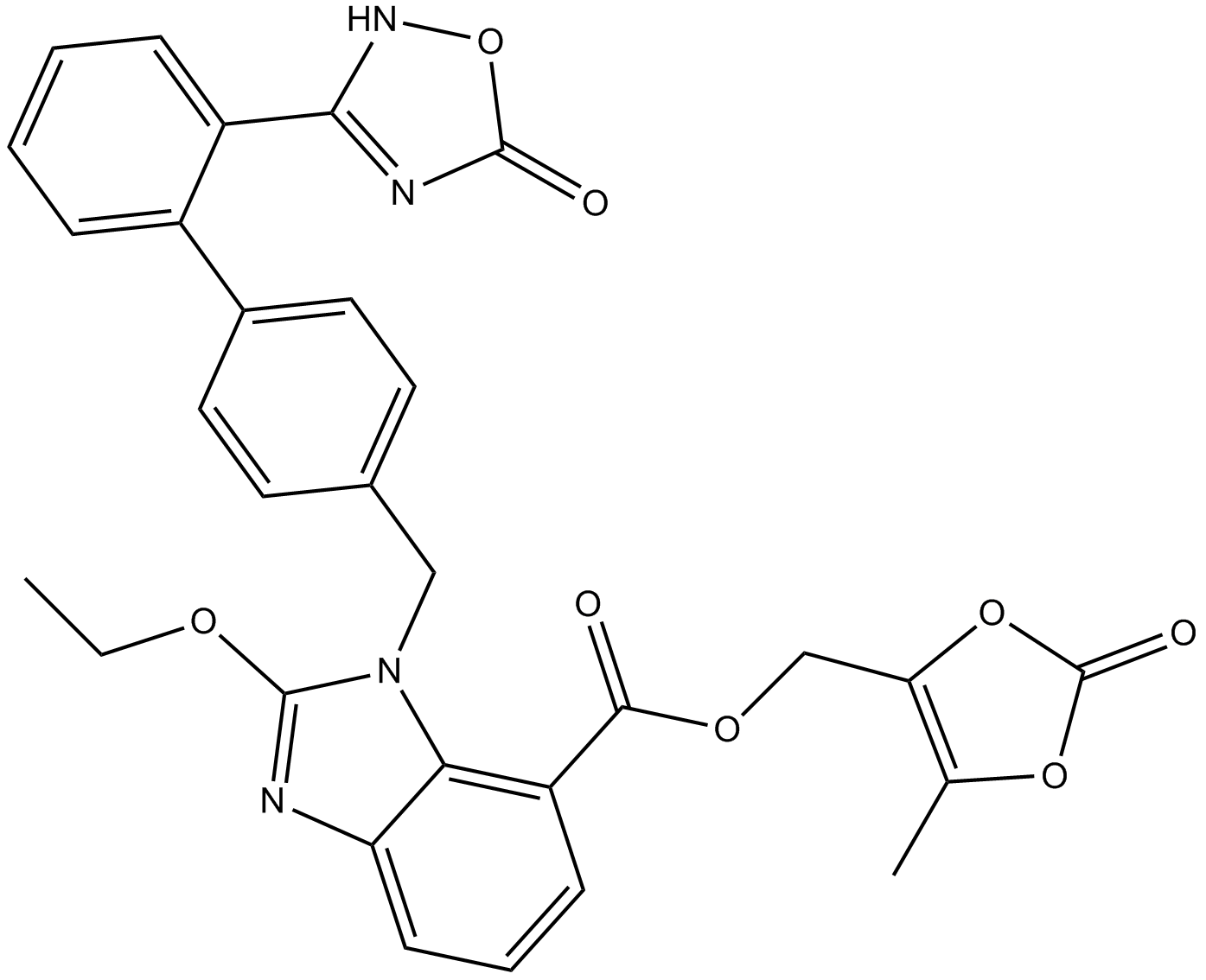
-
GC10642
Azilsartan medoxomil monopotassium
Angiotensin II receptor type 1 antagonist
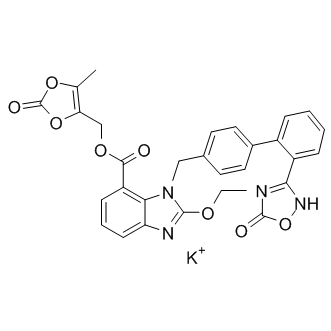
-
GC66468
Azilsartan mepixetil
Azilsartan mepixetil is the antagonist of angiotensin II receptor. Azilsartan mepixetil has stronger and longer blood pressure effect, more abvious and longer lasting heart rate lowering effect and high safety. Azilsartan mepixetil achieves ideal protective effect for heart and kidney functions. Azilsartan mepixetil has the potential for the research of hypertension, chronic heart failure and diabetic nephropathy (extracted from patent CN107400122A).
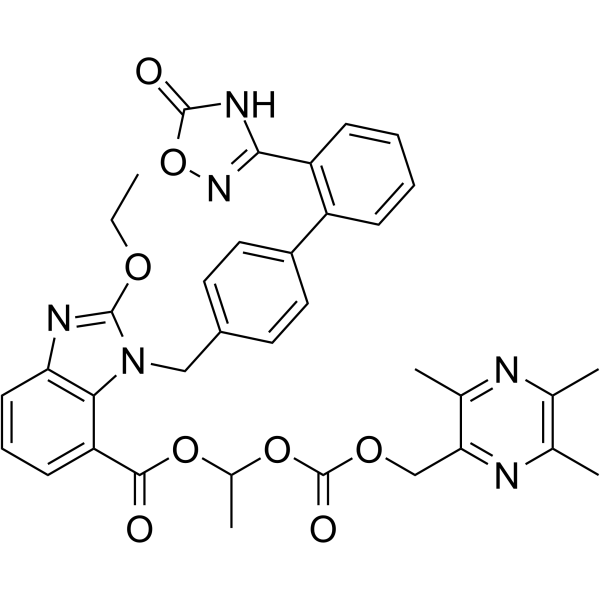
-
GC66440
Azilsartan mopivabil
Azilsartan mopivabil is the potent antagonist of angiotensin II receptor.
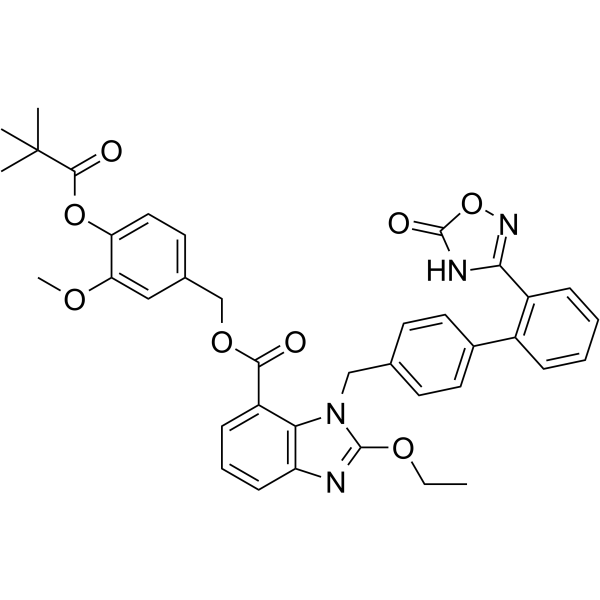
-
GC46913
Benazepril-d5 (hydrochloride)
An internal standard for the quantification of benazapril

-
GC19071
BIBS 39
BIBS 39 is a new nonpeptide angiotensin II (AII) receptor antagonist.
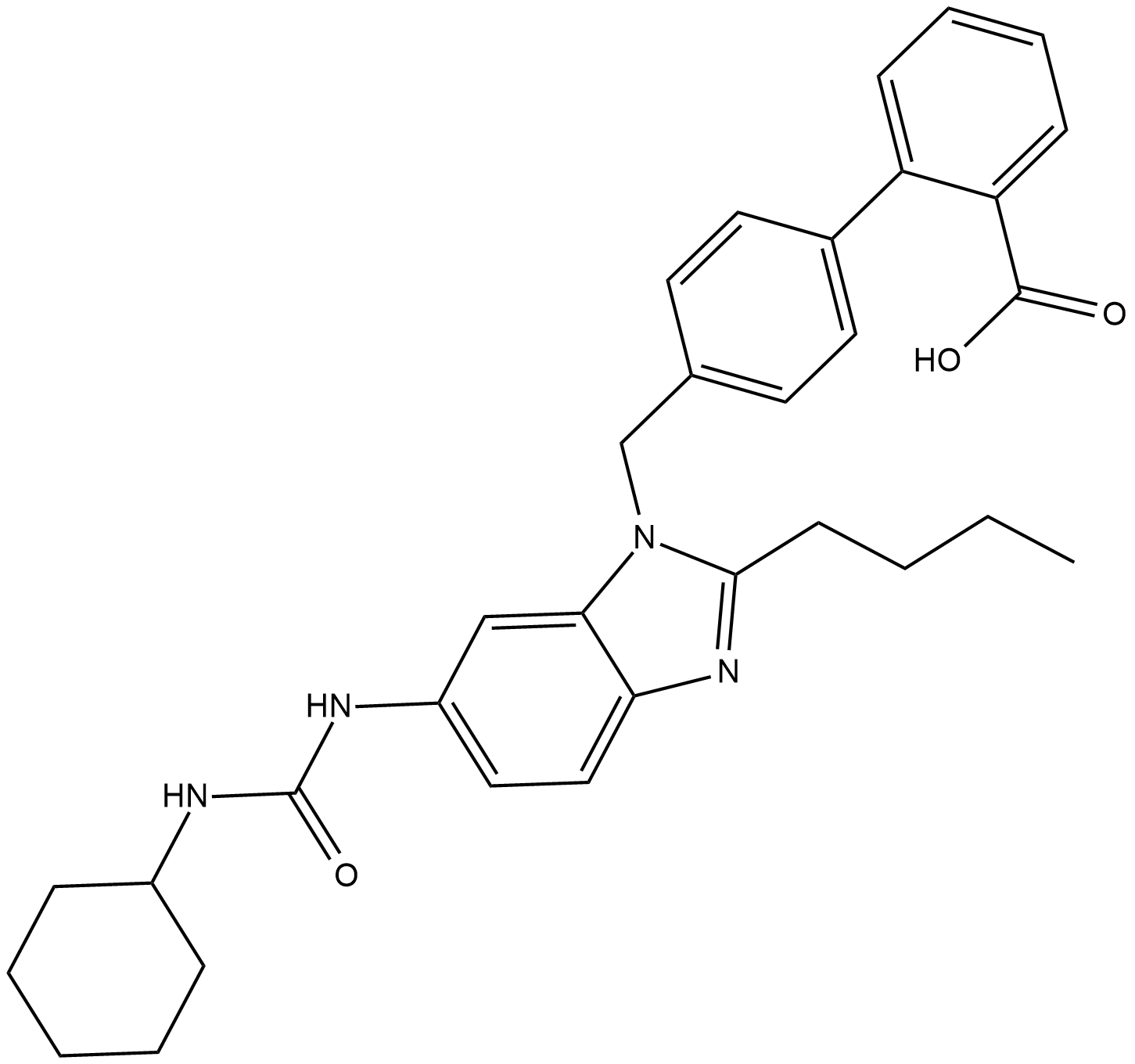
-
GC60095
Brain Natriuretic Peptide (1-32), rat acetate
Brain Natriuretic Peptide (1-32), rat acetate (BNP (1-32), rat acetate) is a 32 amino acid polypeptide secreted by the ventricles of the heart in response to excessive stretching of heart muscle cells (cardiomyocytes).
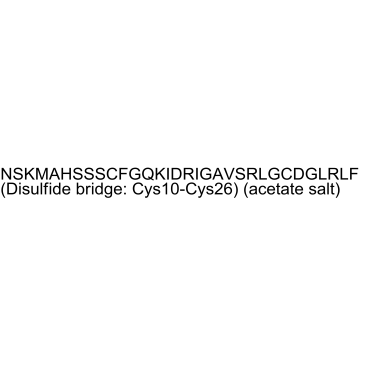
-
GC32589
Brain Natriuretic Peptide (BNP) (1-32), rat
Brain Natriuretic Peptide (BNP) (1-32), rat (BNP (1-32), rat) is a 32 amino acid polypeptide secreted by the ventricles of the heart in response to excessive stretching of heart muscle cells (cardiomyocytes).
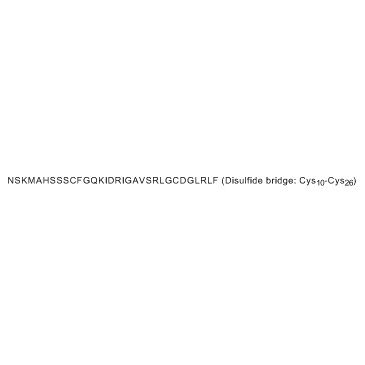
-
GC12034
C-type natriuretic peptide (1-22) (human, rat, swine)
C-type natriuretic peptide (1-22) (human, rat, swine), a 1-22 fragment of CNP, is a natriuretic peptide receptor B (NPR-B) agonist.
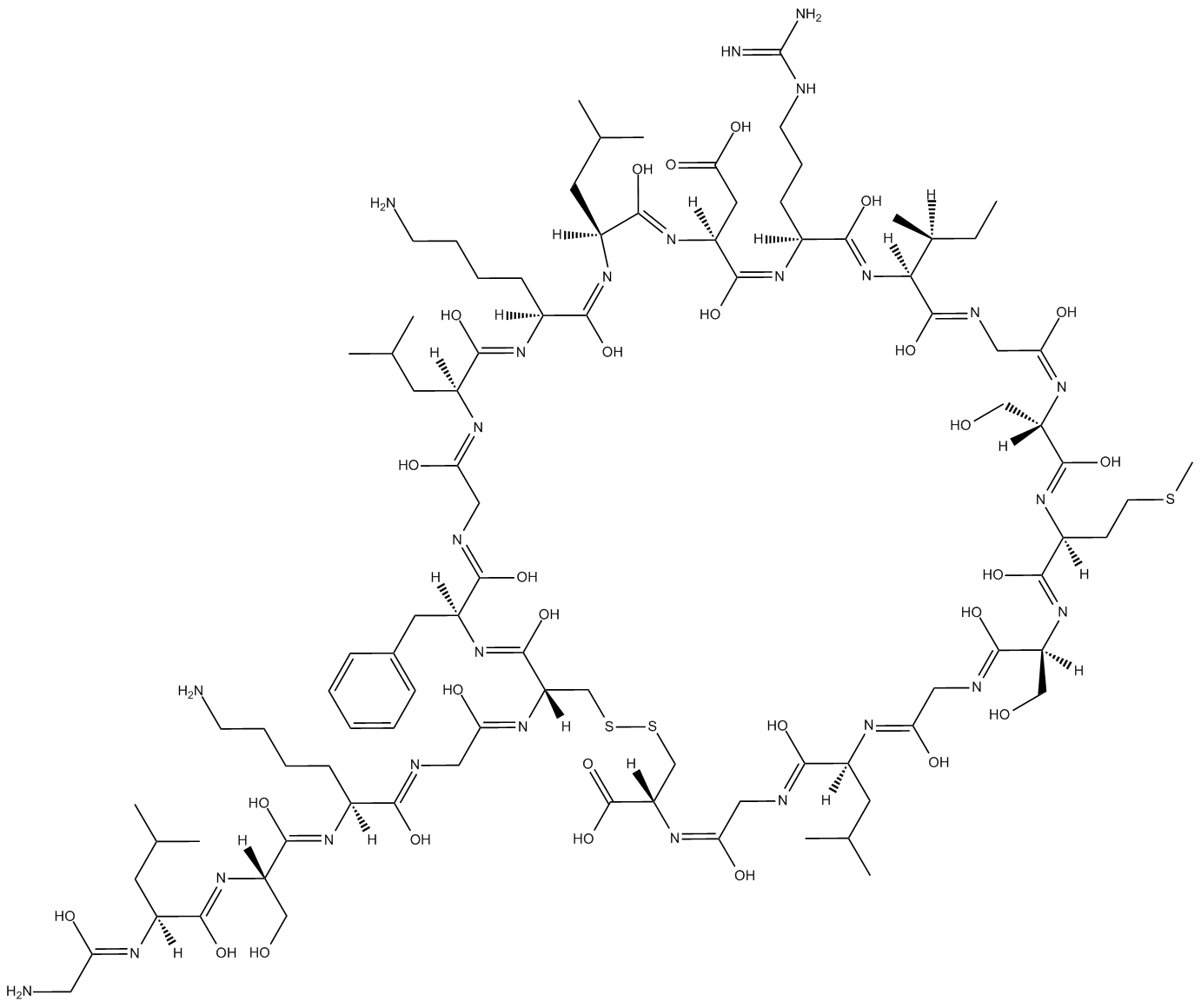
-
GC35756
C-Type Natriuretic Peptide (1-53), human
C-Type Natriuretic Peptide (1-53), human is the 1-53 fragment of C-Type Natriuretic Peptide.
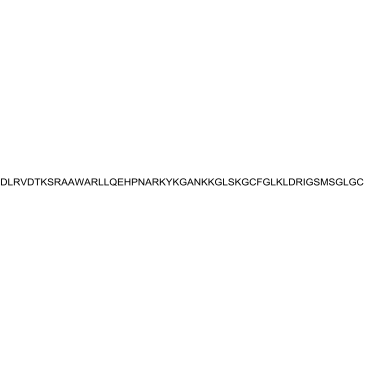
-
GC68908
C-Type Natriuretic Peptide (1-53), human TFA
C-Type Natriuretic Peptide (1-53), human TFA is a fragment of C-type natriuretic peptide consisting of amino acids 1 to 53. C-Type Natriuretic Peptide TFA belongs to the family of natriuretic peptides and is involved in maintaining electrolyte-fluid balance and vascular tone.
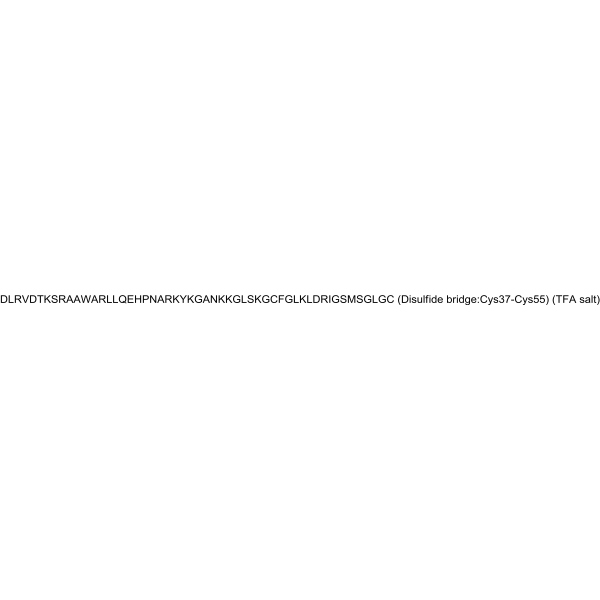
-
GC16978
Candesartan
Angiotensin II receptor 1 (AT1) antagonist
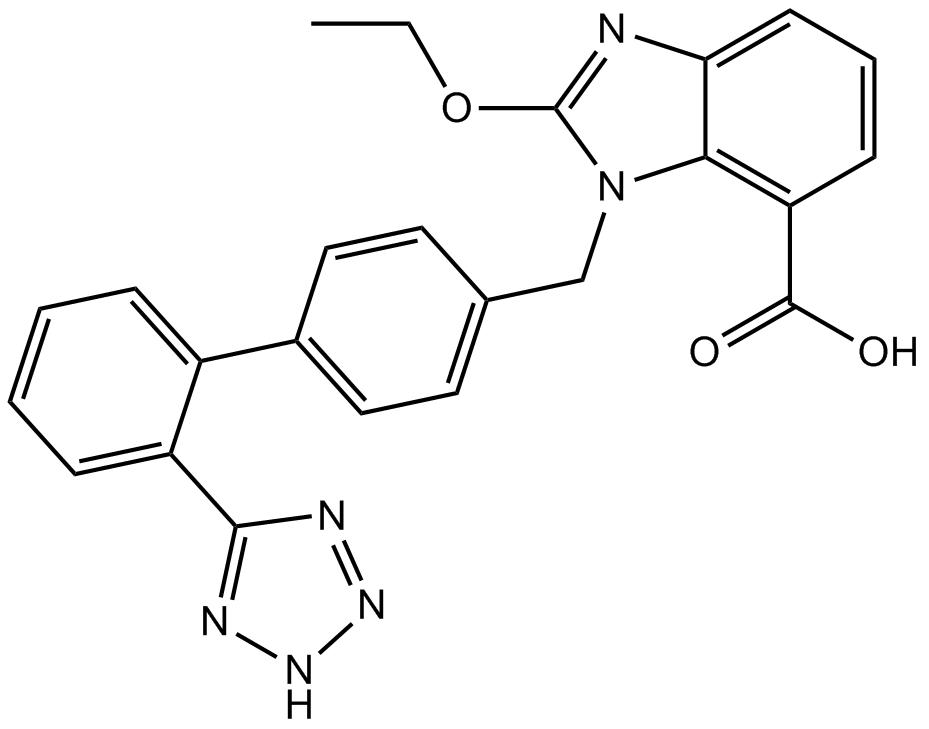
-
GC12318
Candesartan Cilexetil
Prodrug of the angiotensin II receptor 1 (AT1) antagonist candesartan
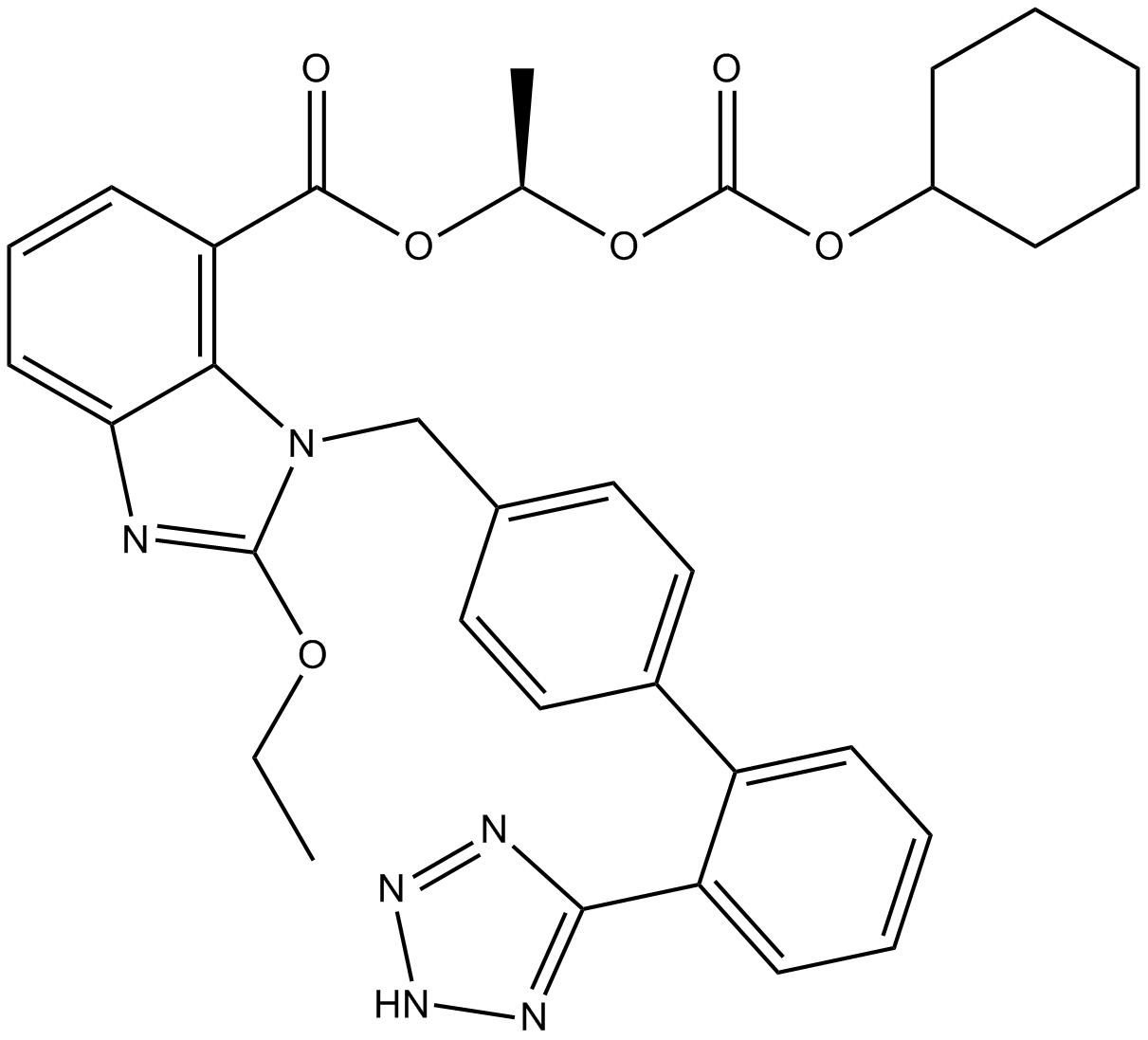
-
GC40238
Candesartan-d4
Candesartan-d4 is intended for use as an internal standard for the quantification of candesartan by GC- or LC-MS.

-
GC15406
CGP 42112
angiotensin AT2 receptor ligand
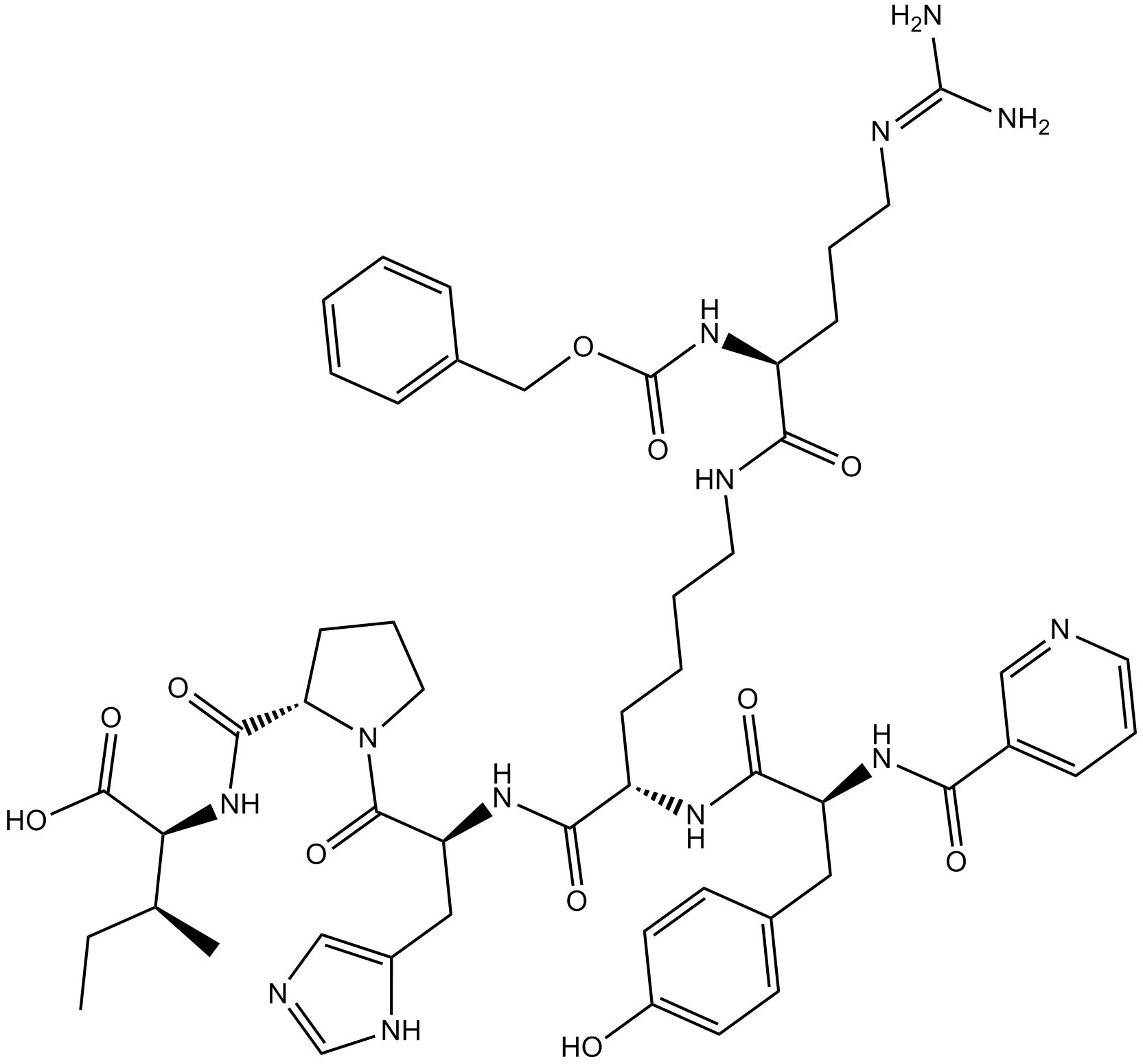
-
GC32561
CGP48369
CGP48369 is a nonpeptidic angiotensin II receptor antagonist, used for anti-hypertensive research.
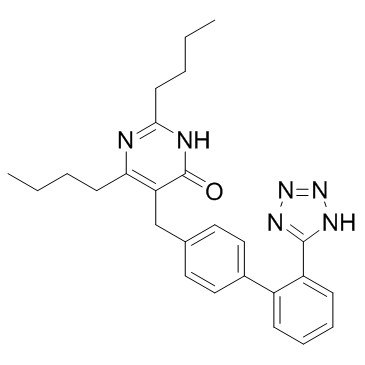
-
GC60748
Dehydro Olmesartan
Dehydro Olmesartan is a derivative of Olmesartan.
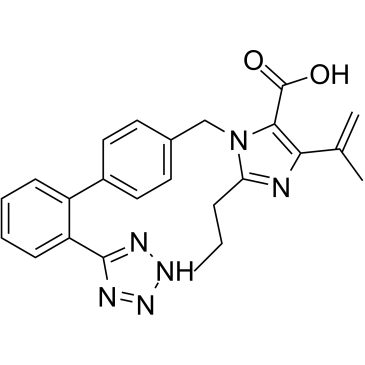
-
GC43580
DX600
DX600 is a potent and selective peptide inhibitor of angiotensin-converting enzyme 2 (ACE2; Kis = 2.8, 200, and 1,200 nM for recombinant, human, and murine ACE2, respectively).

-
GC49566
DX600 (trifluoroacetate salt)
A peptide inhibitor of ACE2

-
GC32536
Elisartan (HN 65021)
Elisartan (HN 65021) is an orally active non-peptide pro-drug of angiotensin II AT1 receptor antagonist HN-12206, and shows anti-hypertension activities.
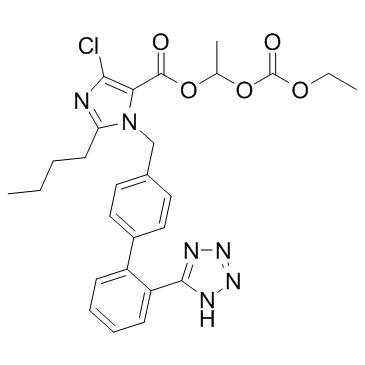
-
GC19137
EMA401
EMA401 (EMA401) is a highly selective, orally active, peripherally restricted angiotensin II type 2 receptor (AT2R) antagonist.
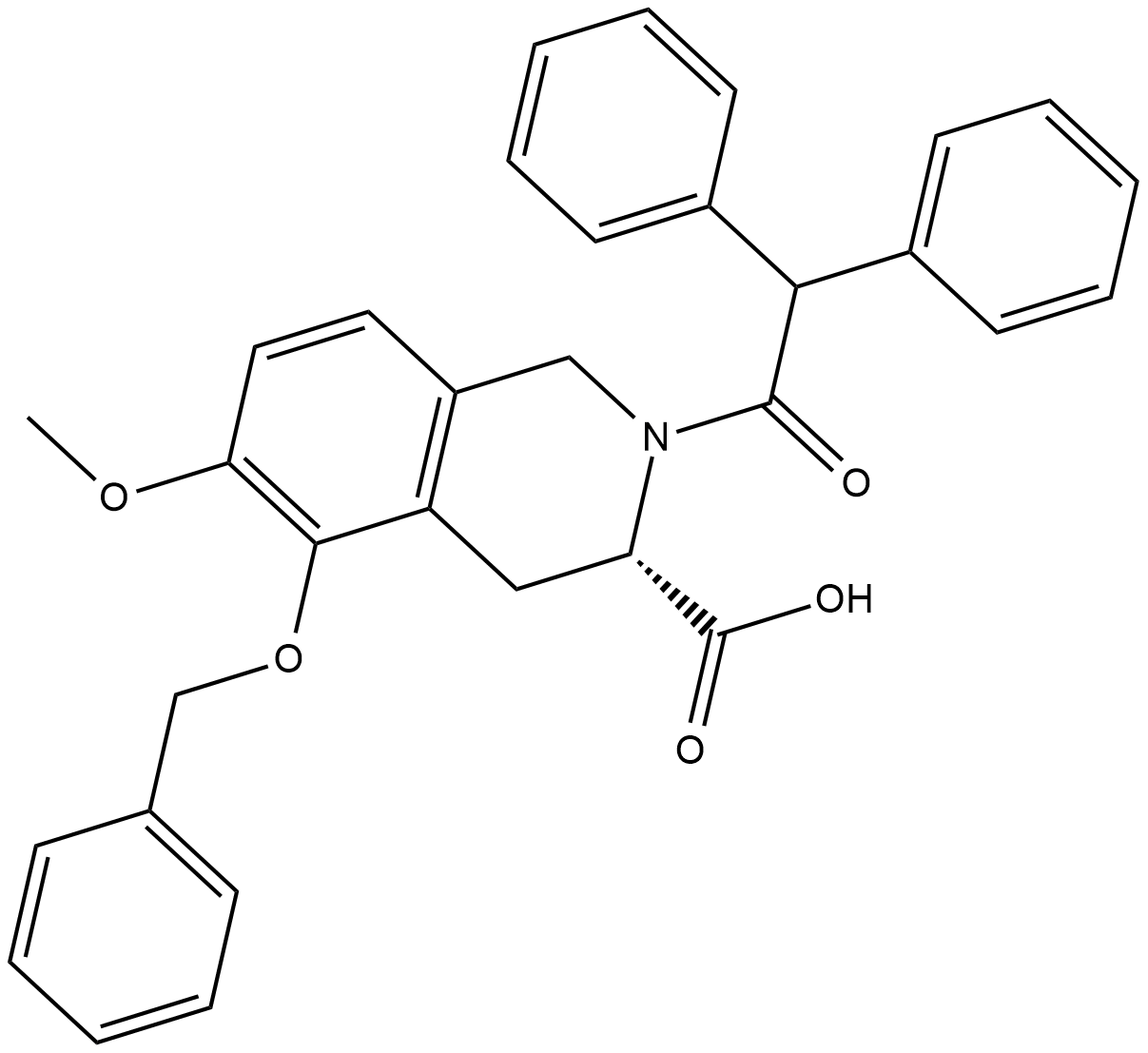
-
GC13436
EMD 66684
angiotensin AT1 receptor antagonist
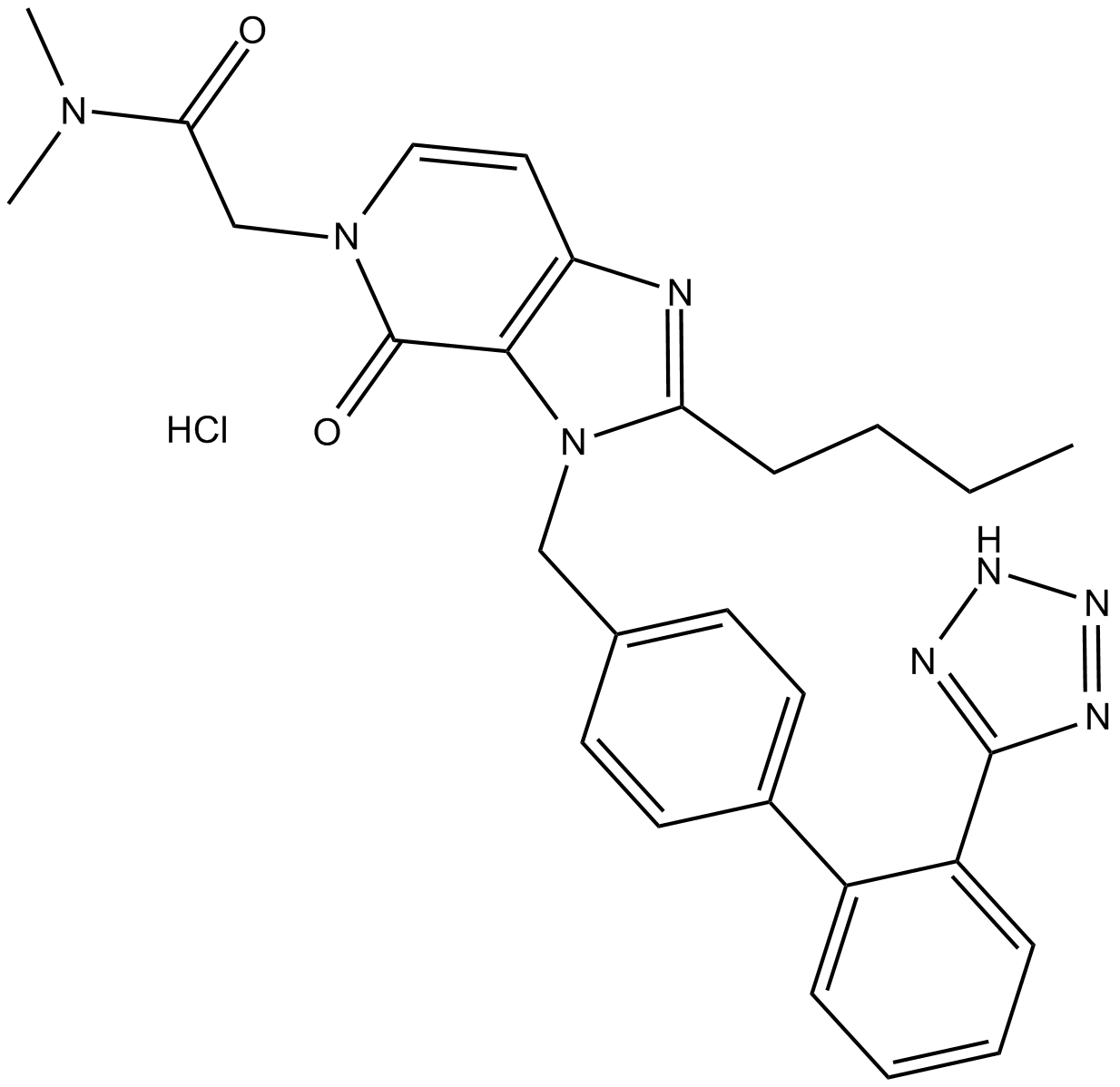
-
GC16297
Eprosartan Mesylate
Angiotensin AT1 receptor antagonists
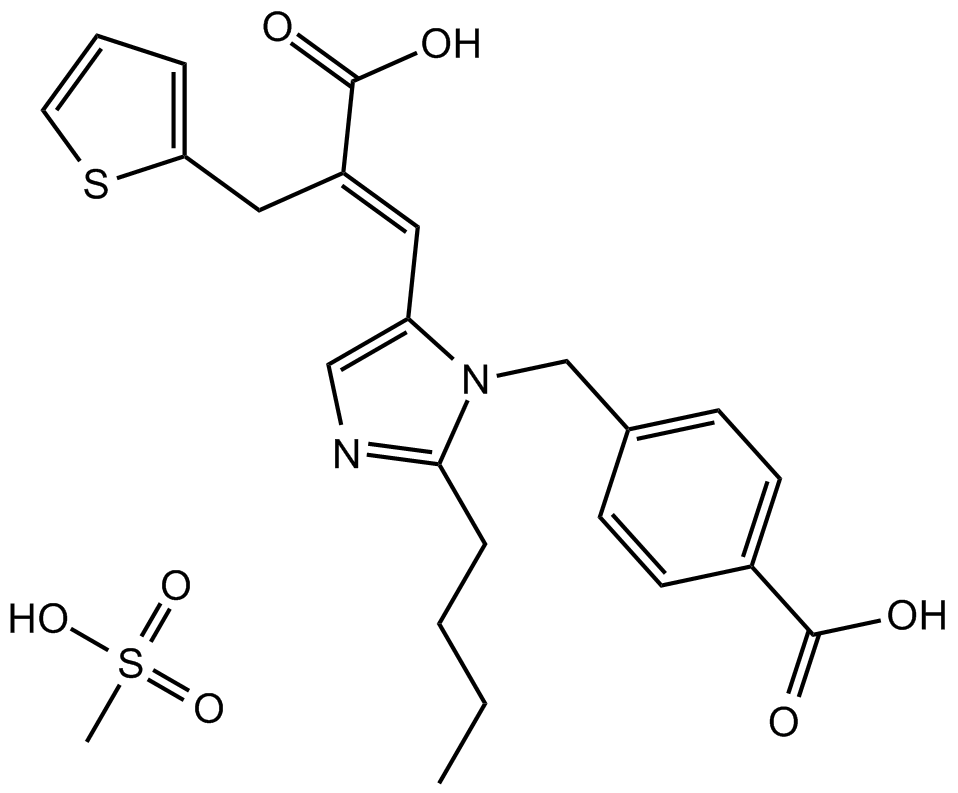
-
GC36046
Fimasartan
Fimasartan(BR-A-657) is a non-peptide angiotensin II receptor antagonist used for the treatment of hypertension and heart failure.
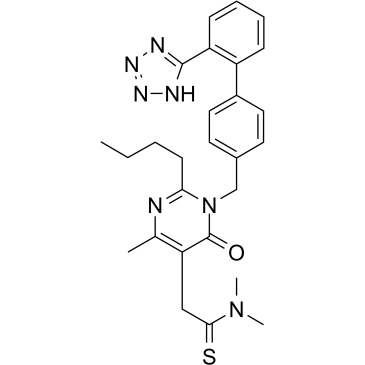
-
GC47371
Fosinopril-d7 (sodium salt)
An internal standard for the quantification of fosinopril

-
GC49228
Ganoderol B
A triterpenoid with diverse biological activities

-
GC31529
H-Val-Pro-Pro-OH
H-Val-Pro-Pro-OH, a milk-derived proline peptides derivative, is an inhibitor of Angiotensin I converting enzyme (ACE), with an IC50 of 9 μM.
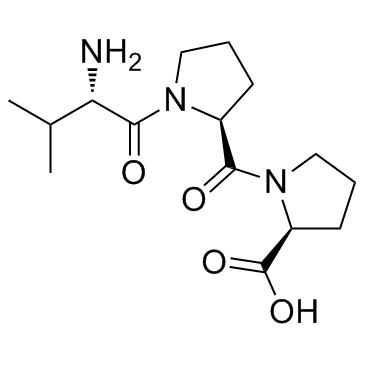
-
GC34326
H-Val-Pro-Pro-OH TFA
H-Val-Pro-Pro-OH (TFA), a milk-derived proline peptides derivative, is an inhibitor of Angiotensin I converting enzyme (ACE), with an IC50 of 9 μM.
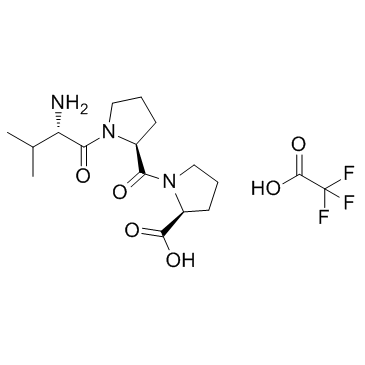
-
GC10467
Irbesartan
Angiotensin II inhibitor
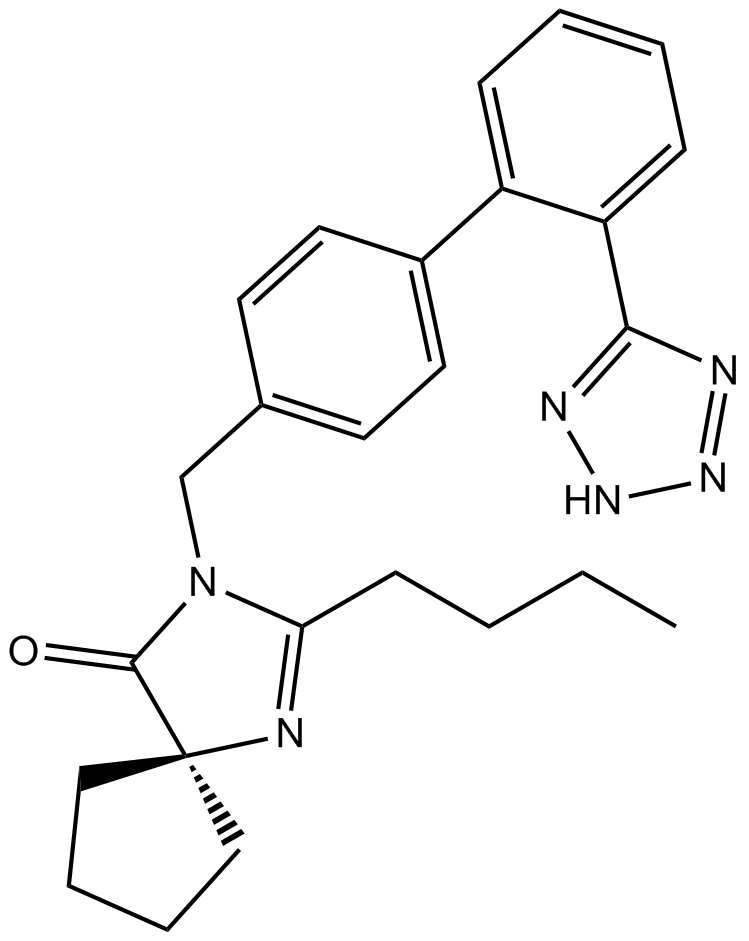
-
GC40208
Irbesartan-d4
Irbesartan-d4 is intended for use as an internal standard for the quantification of irbesartan by GC- or LC-MS.

-
GC32569
L-159282 (MK 996)
L-159282 (MK 996) is a highly potent, orally active, nonpeptide angiotensin II receptor antagonist, with anti-hypertensive activity.
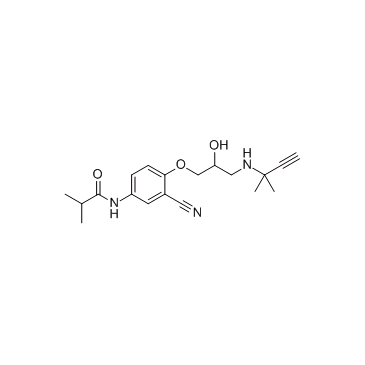
-
GC30443
L162389
L162389 is a potent antagonist of angiotensin AT1 receptor with Ki of 28 nM.
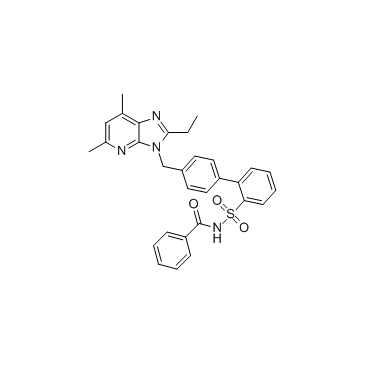
-
GC31567
L162441
L162441 is an Angiotensin type 1 receptor antagonist.
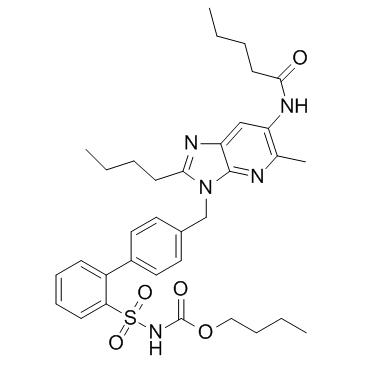
-
GC11784
LCZ696
LCZ696 (LCZ696), comprised Valsartan and Sacubitril (AHU377) in 1:1 molar ratio, is a first-in-class, orally bioavailable, and dual-acting angiotensin receptor-neprilysin (ARN) inhibitor for hypertension and heart failure.
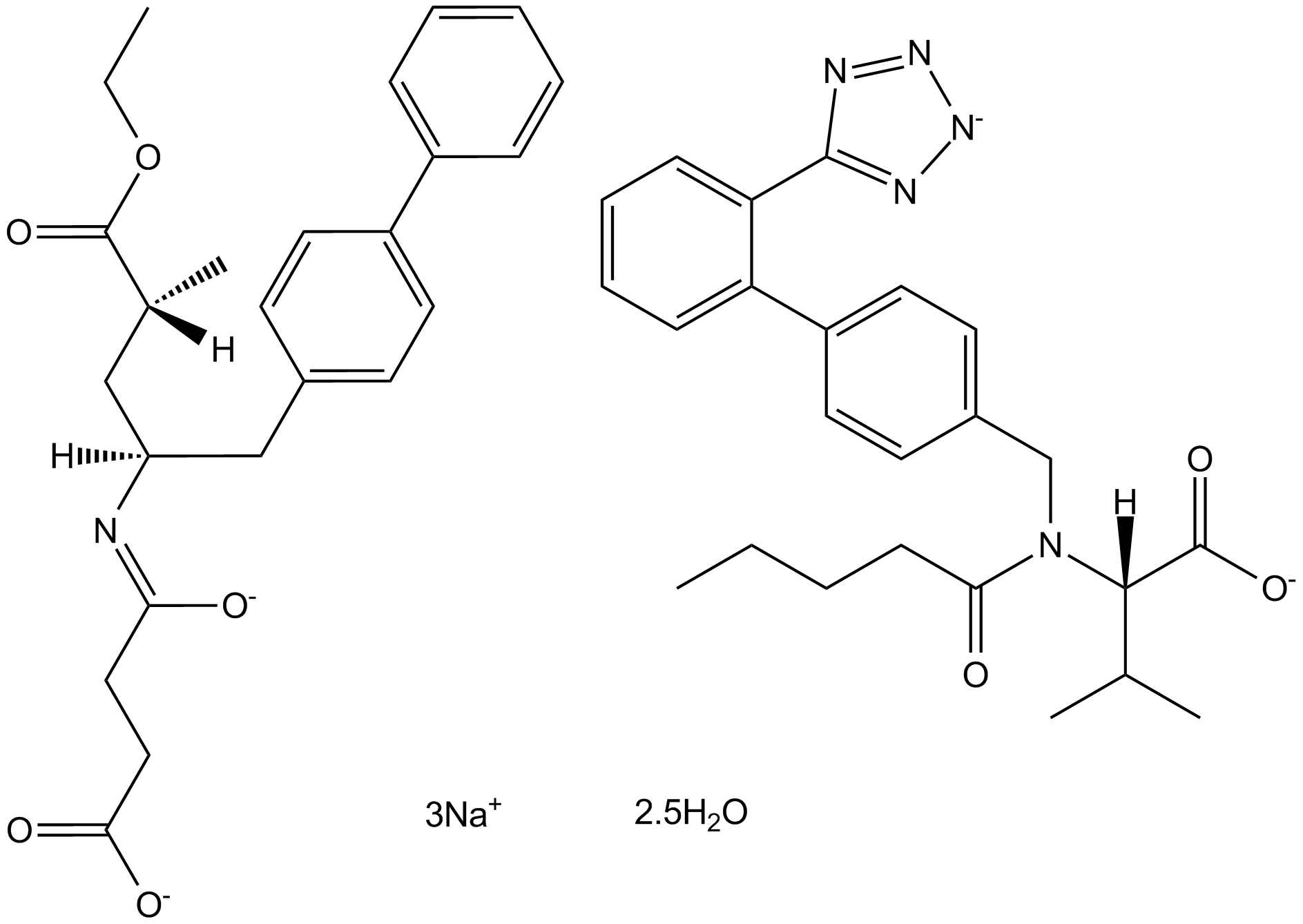
-
GC45501
Lisinopril-d5

-
GC10249
Losartan
Angiotensin II receptor antagonist
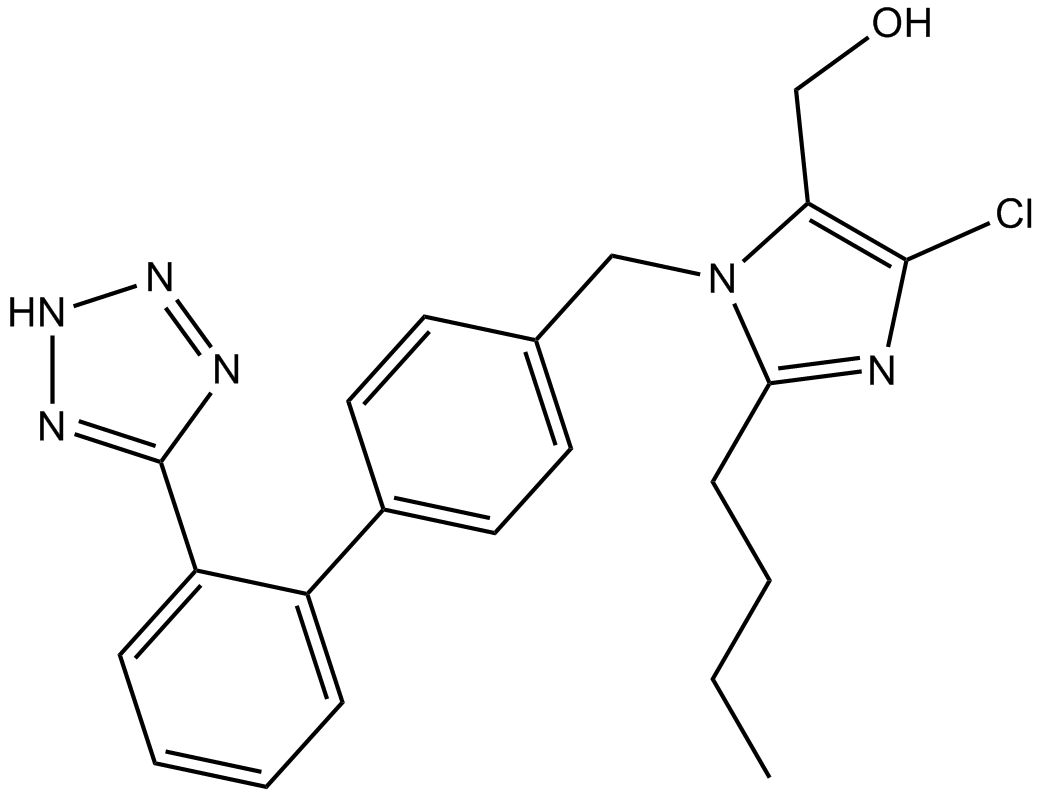
-
GC12512
Losartan Carboxylic Acid
AT1 antagonist
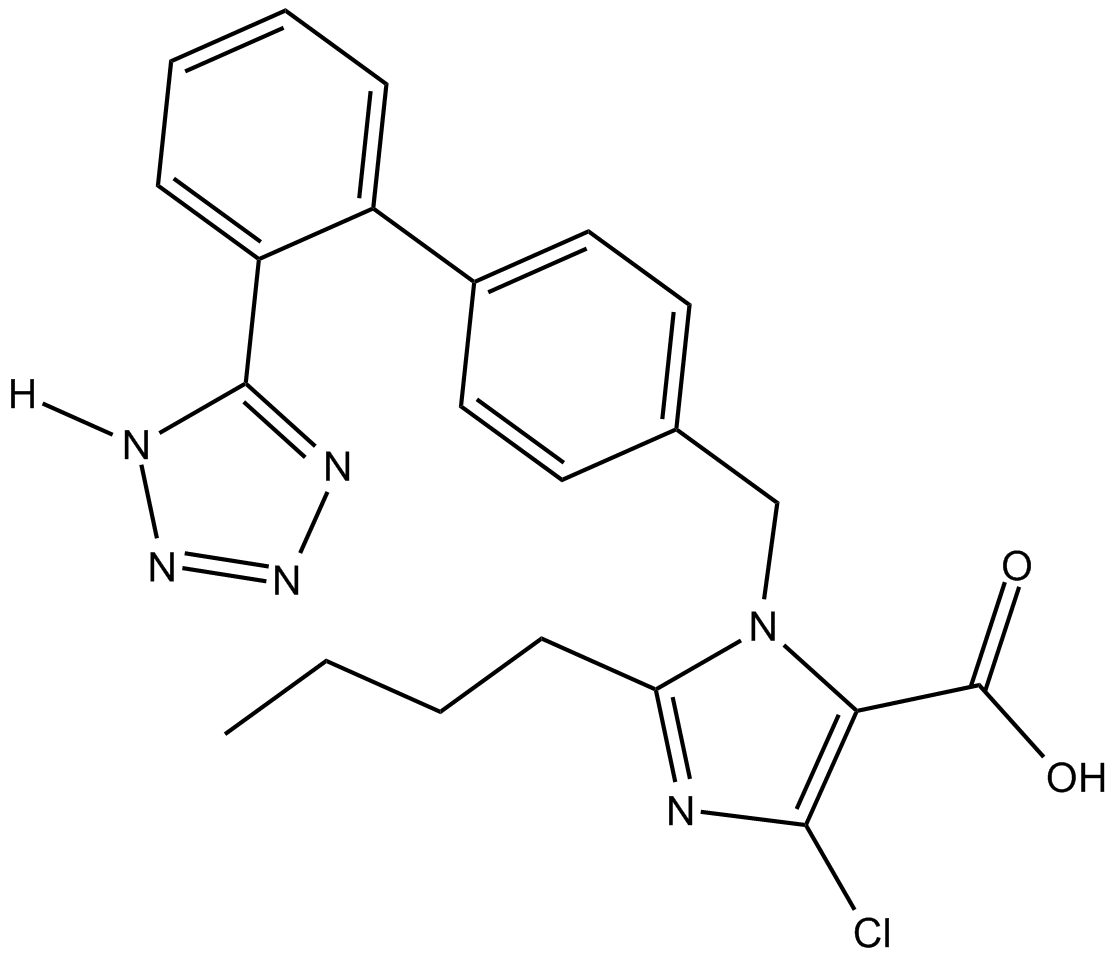
-
GC36480
Losartan D4
An internal standard for the quantification of losartan
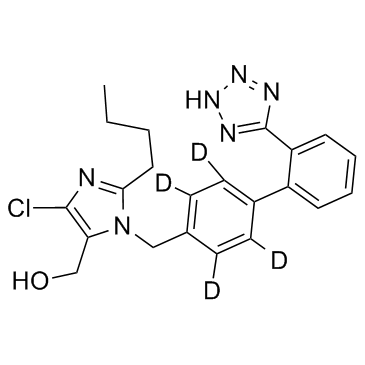
-
GC36481
Losartan D4 Carboxylic Acid
Losartan D4 Carboxylic Acid (E-3174 D4) is the deuterium labeled Losartan(EXP-3174), which is an angiotensin II receptor antagonist.
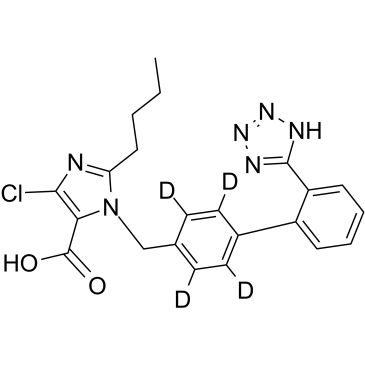
-
GC10257
Losartan Potassium (DuP 753)
Losartan Potassium (DuP 753) (DuP-753 potassium) is an angiotensin II receptor type 1 (AT1) antagonist, competing with the binding of angiotensin II to AT1 with an IC50 of 20 nM.
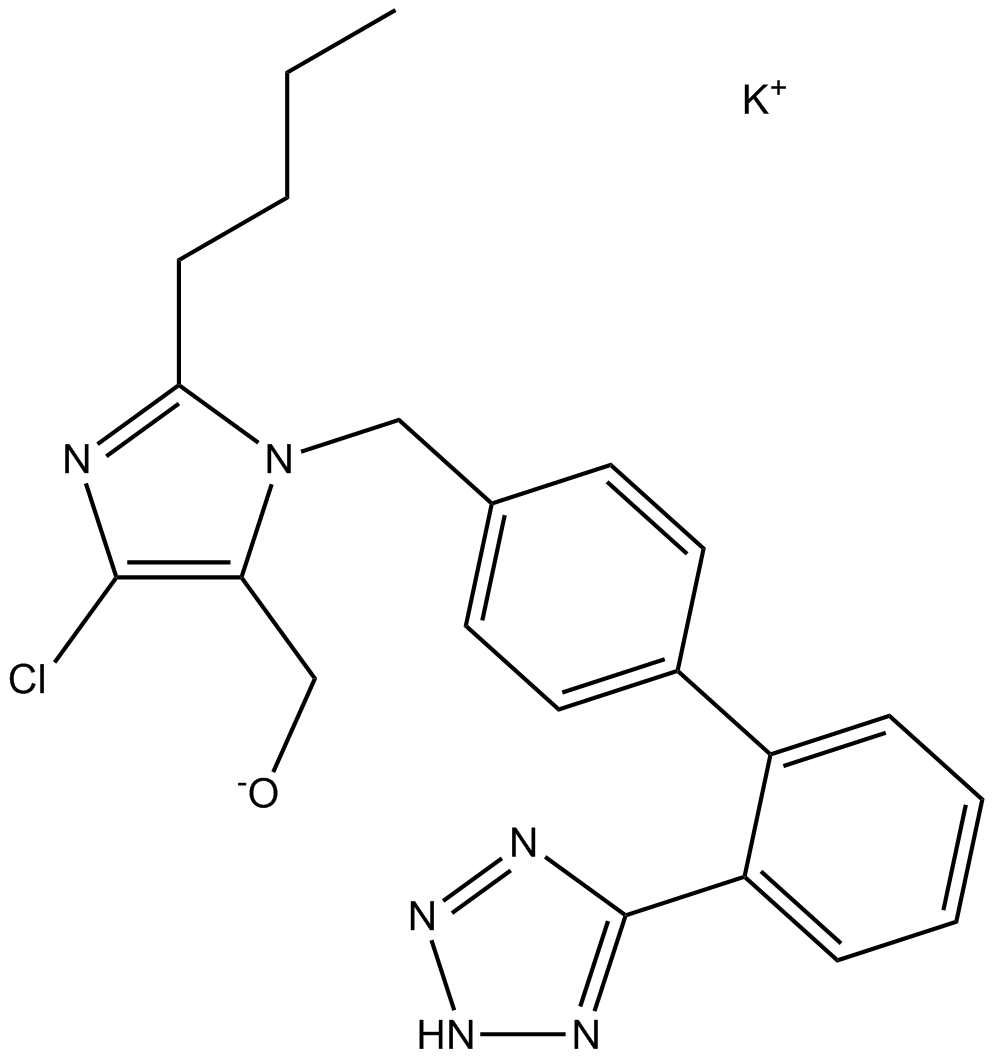
-
GC32632
LY285434
LY285434 is a suitable angiotensin II receptor antagonist.
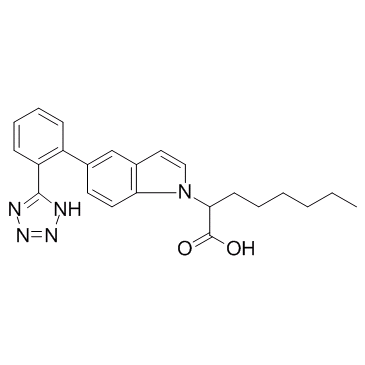
-
GC64604
Mopivabil
Mopivabil is the antagonist of angiotensin II receptor.
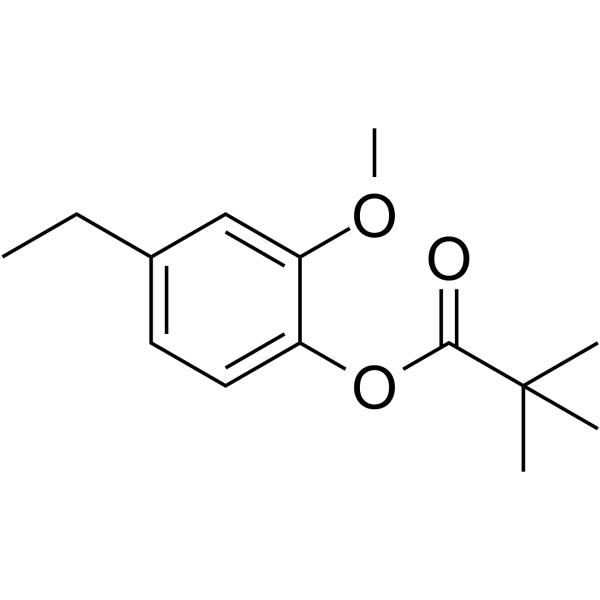
-
GC10024
Novokinin
Angiotensin AT2 receptor agonist
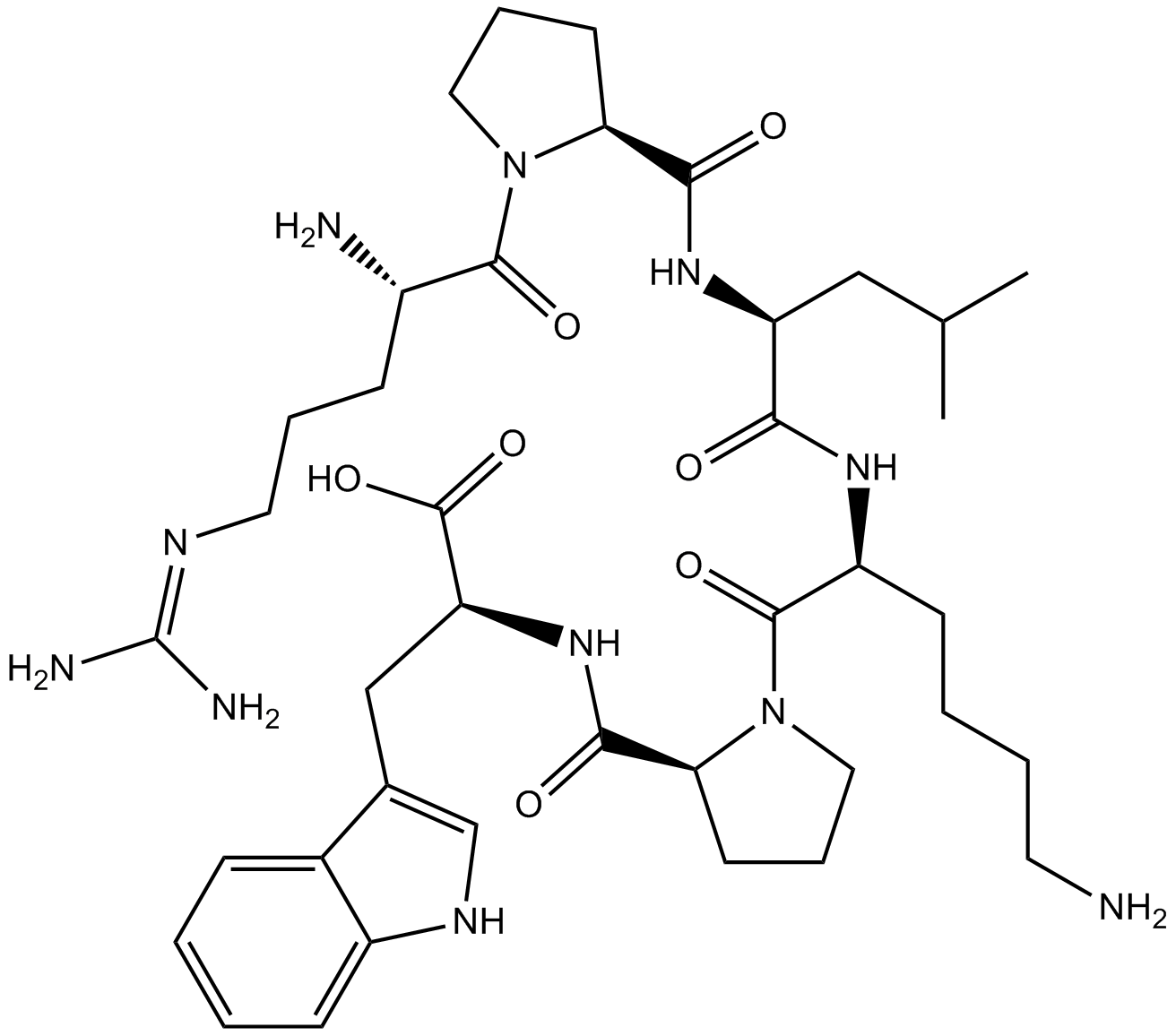
-
GC16936
Olmesartan
An AT1 receptor antagonist and active metabolite of olmesartan medoxomil
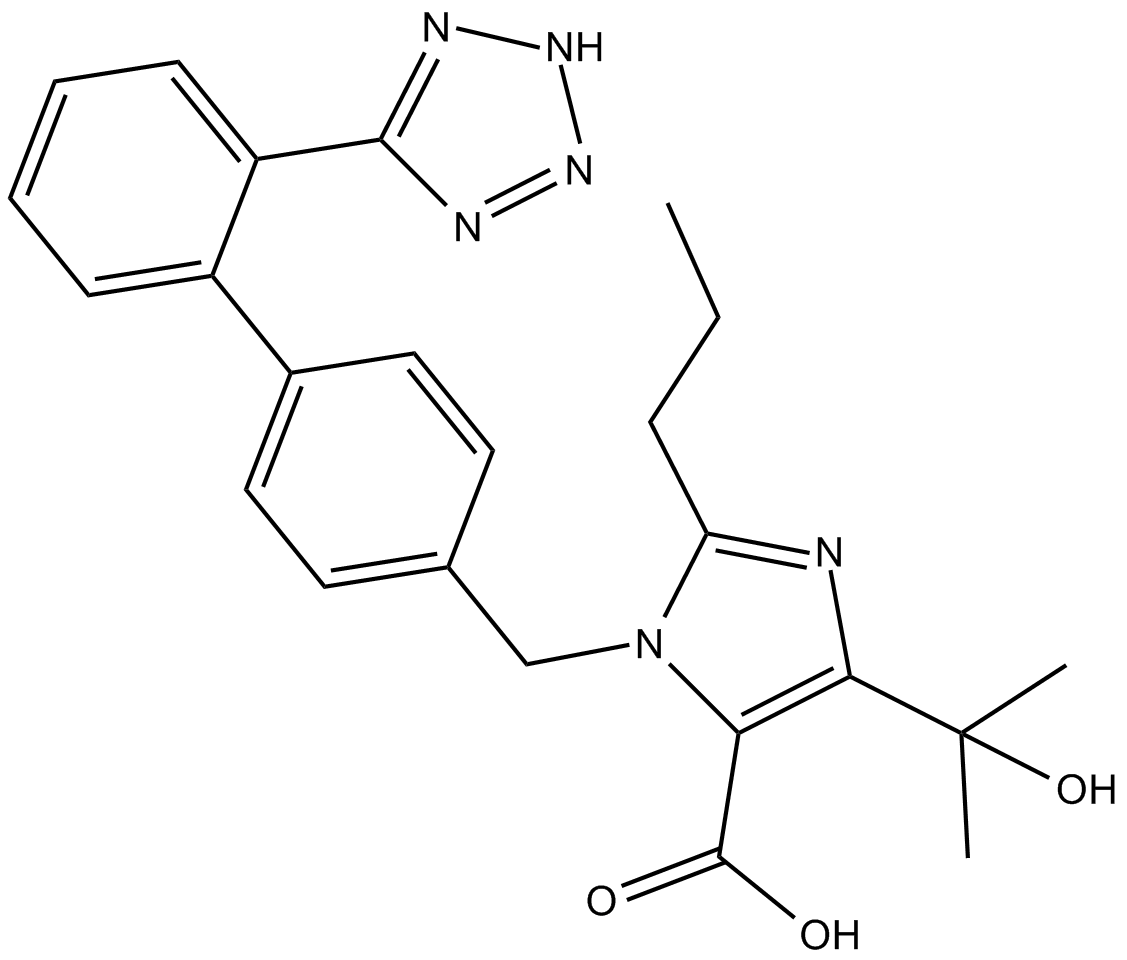
-
GC36802
Olmesartan D4
Olmesartan D4 (RNH-6270 D4) is the deuterium labeled Olmesartan.
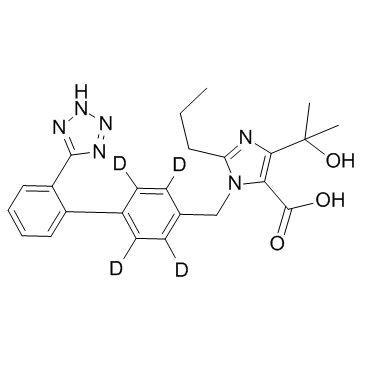
-
GC16752
Olmesartan medoxomil
A prodrug form of olmesartan
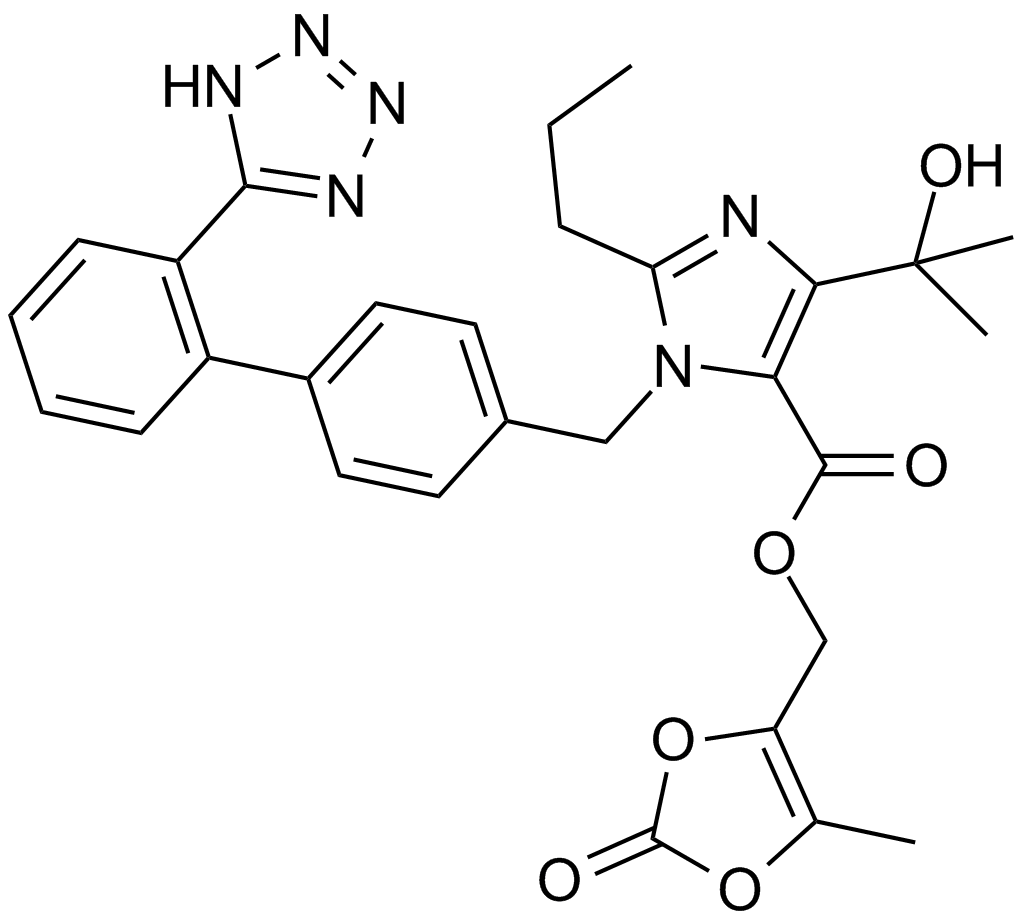
-
GC61153
Olmesartan medoxomil impurity C
Olmesartan medoxomil impurity C is an Olmesartan medoxomil impurity.
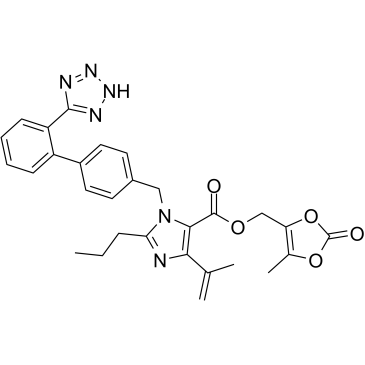
-
GC61154
Olmesartan methyl ester
Olmesartan methyl ester is an intermediate in the synthesis of Olmesartan medoxomil.
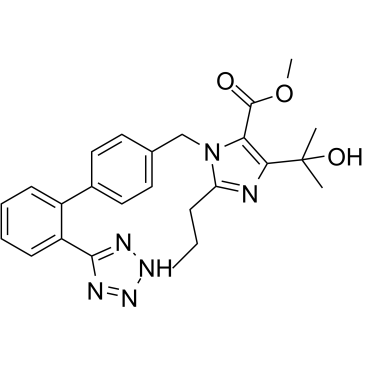
-
GC17384
PD 123319 ditrifluoroacetate
A selective angiotensin II type 2 receptor antagonist
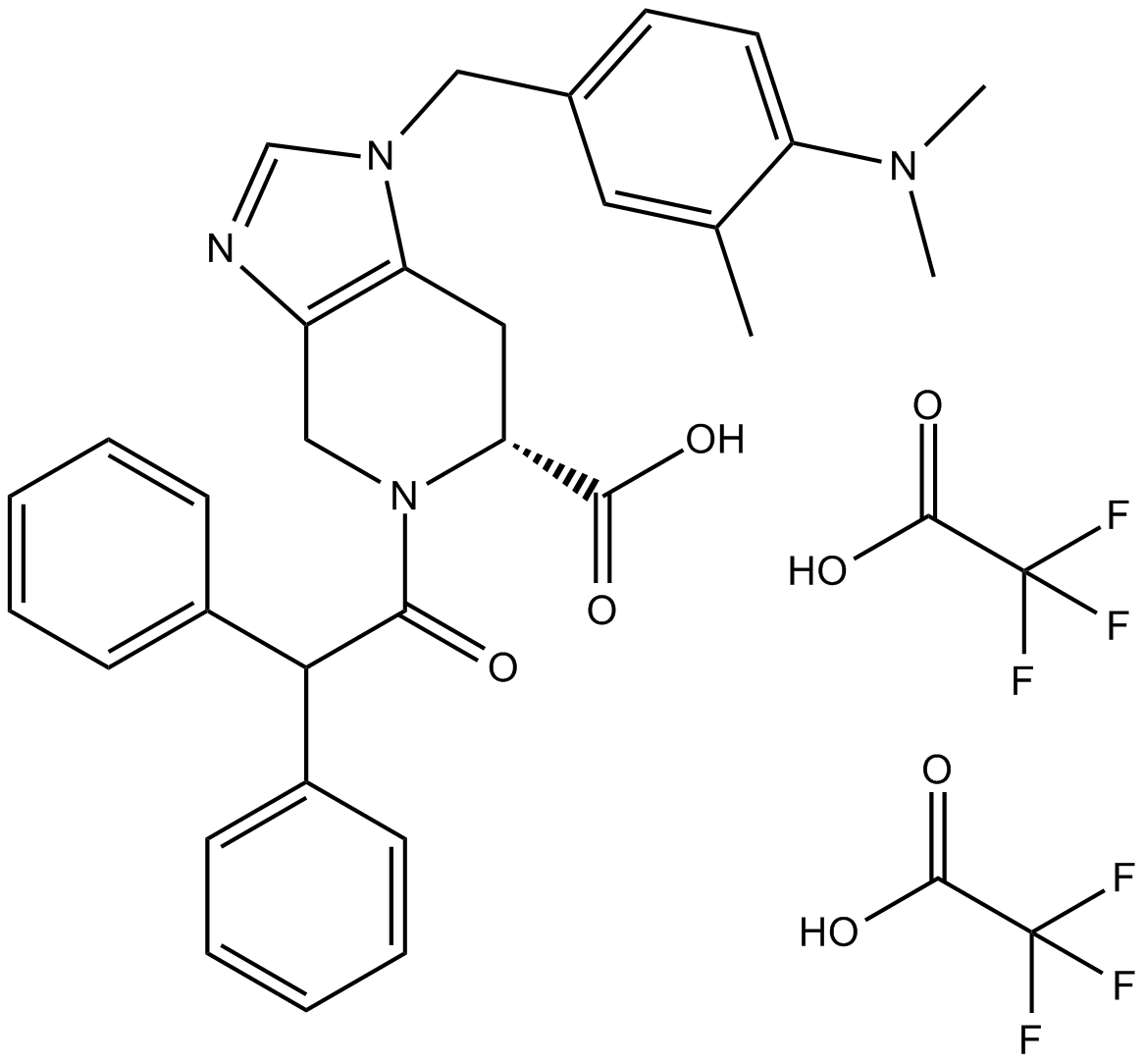
-
GC16394
PD123319
PD123319 is a non-peptide inhibitor of angiotensin II receptor with IC50 value of 34nM .
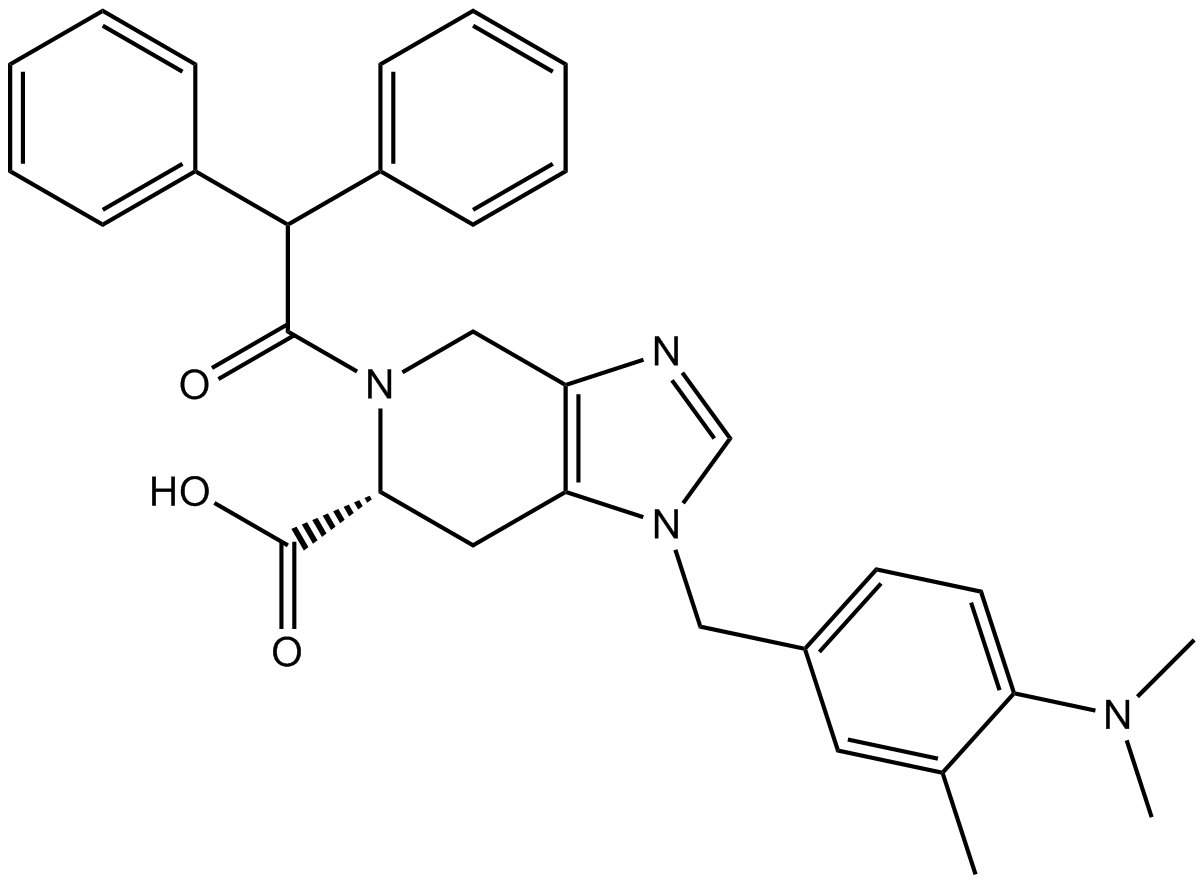
-
GC16871
Perindopril
ACE inhibitor
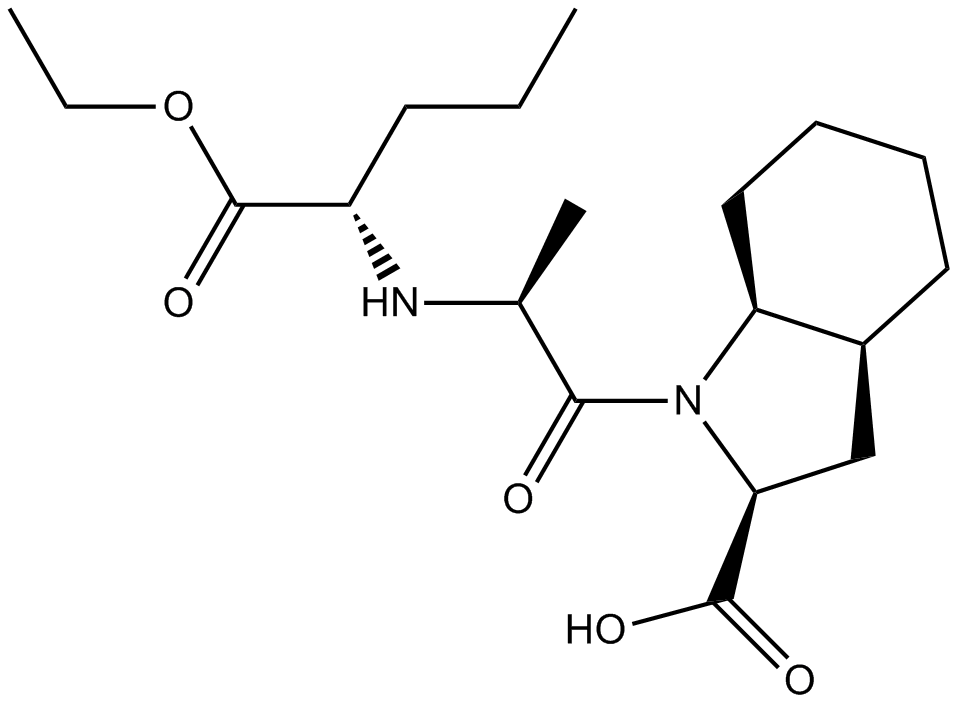
-
GC32530
Pratosartan (FW 7203)
Pratosartan (FW 7203) is a selective angiotensin II receptor antagonist.
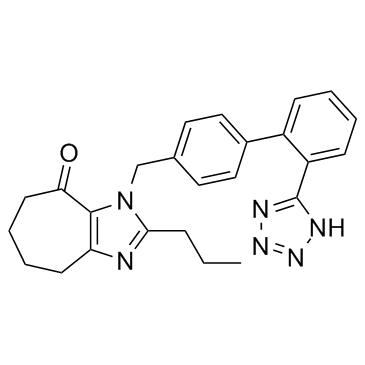
-
GC48513
Quinapril-d5
An internal standard for the quantification of quinapril

-
GC49653
Ramipril Diketopiperazine
A potential impurity found in commercial preparations of ramipril

-
GC49408
Ramipril Diketopiperazine Acid
A potential impurity found in commercial preparations of ramipril

-
GC39821
Saralasin TFA
Saralasin ([Sar1,Ala8] Angiotensin II) TFA is an octapeptide analog of angiotensin II.
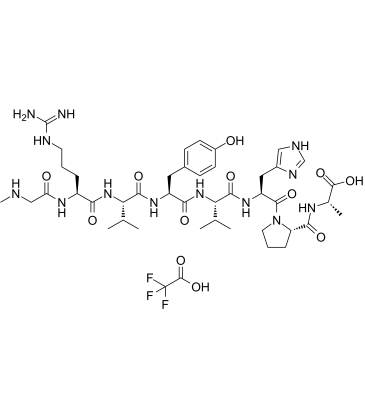
-
GC32591
SL910102
SL910102 is a nonpeptide angiotensin AT1 receptor antagonist.
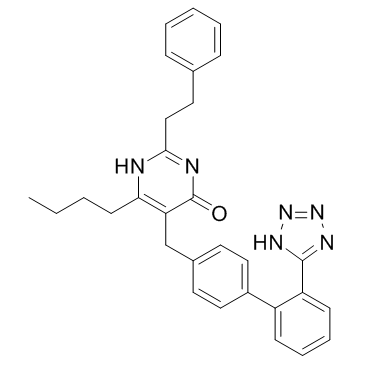
-
GC32479
Sparsentan (RE-021)
Sparsentan (RE-021) (RE-021) is a highly potent dual angiotensin II and endothelin A receptor antagonist with Kis of 0.8 and 9.3 nM, respectively.
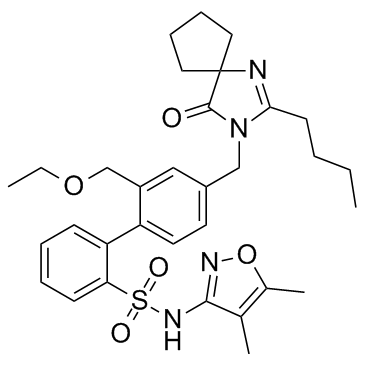
-
GC32507
Tasosartan (WAY-ANA 756)
Tasosartan (WAY-ANA 756) is a long-acting angiotensin II (AngII) receptor antagonist.
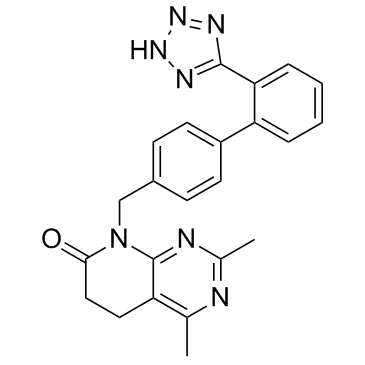
-
GC38856
TD-0212 TFA
TD-0212 TFA is an orally active dual pharmacology angiotensin II type 1 receptor (AT1) antagonist and neprilysin (NEP) inhibitor, with a pKi of 8.9 for AT1 and a pIC50 of 9.2 for NEP.
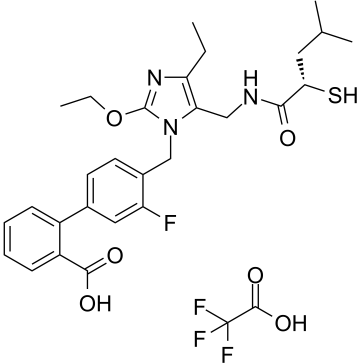
-
GC15023
Telmisattan
Telmisattan is a potent, long lasting antagonist of angiotensin II type 1 receptor (AT1), selectively inhibiting the binding of 125I-AngII to AT1 receptors with IC50 of 9.2 nM.
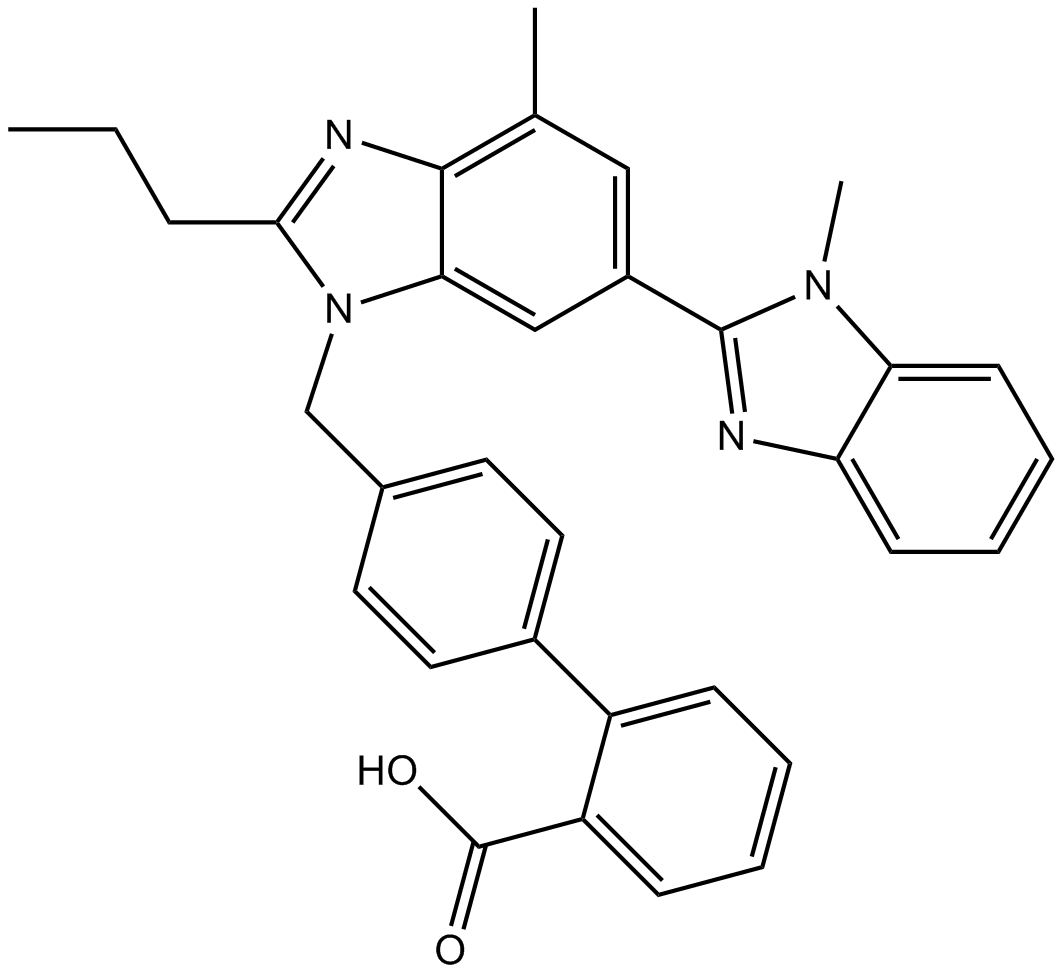
-
GC18202
Temocaprilat
An ACE inhibitor
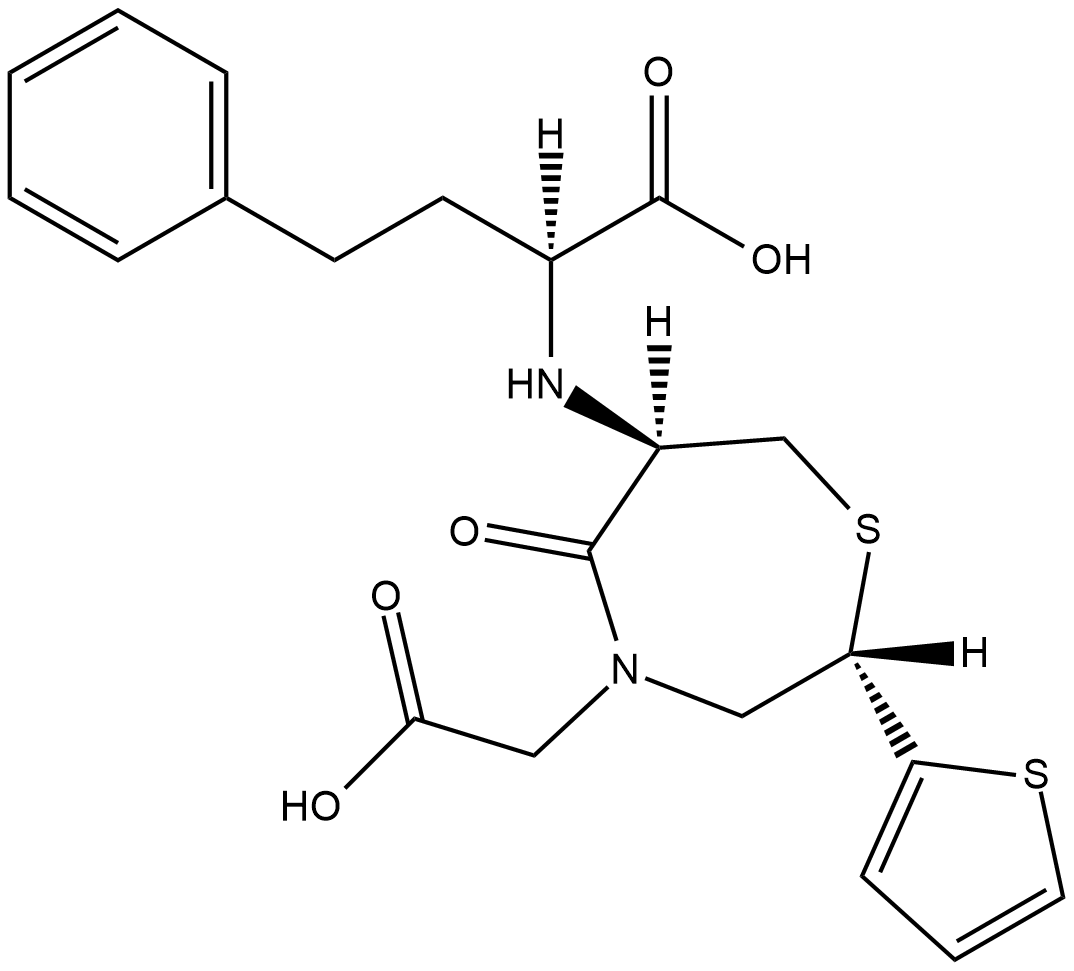
-
GC46233
Trandolaprilat (hydrate)
Trandolaprilat (hydrate) is a potent angiotensin-converting enzyme (ACE) inhibitor.

-
GC13389
Tranilast
Angiogenesis inhibitor
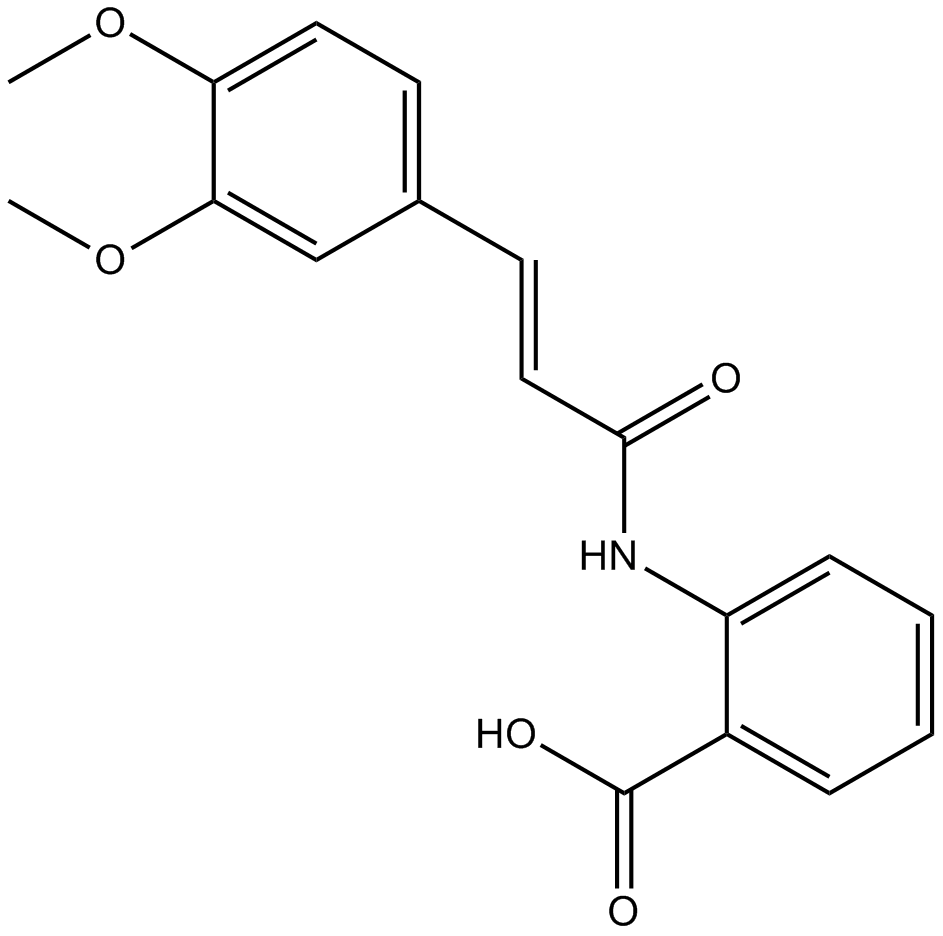
-
GC12443
Tranilast Sodium
Antiallergic agent
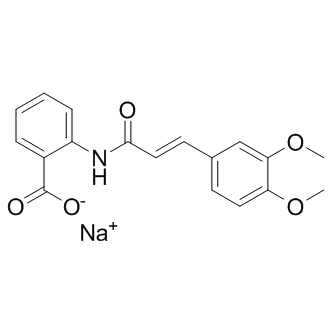
-
GC37819
trans-Tranilast
trans-Tranilast (trans-MK-341) is an antiallergic drug, used to treat bronchial asthma, allergic rhinitis and atopic dermatitis.
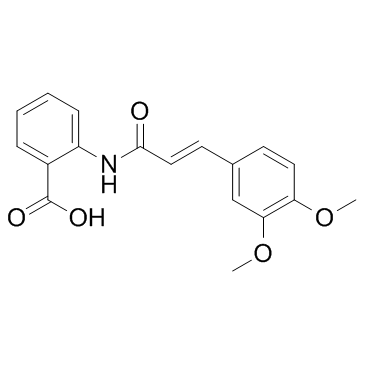
-
GC70070
TRV-120027
TRV120027 is a β-arrestin-1 agonist for angiotensin II type 1 receptor (AT1R). TRV120027 induces acute catecholamine secretion through coupling with the cation channel subfamily C3 (TRPC3), promoting the formation of a large molecular complex consisting of AT1R-β-arrestin-1-TRPC3-PLCγ on the plasma membrane. TRV120027 inhibits angiotensin II-mediated vasoconstriction and increases myocardial contractility. It has potential for use in research on acute decompensated heart failure (ADHF).
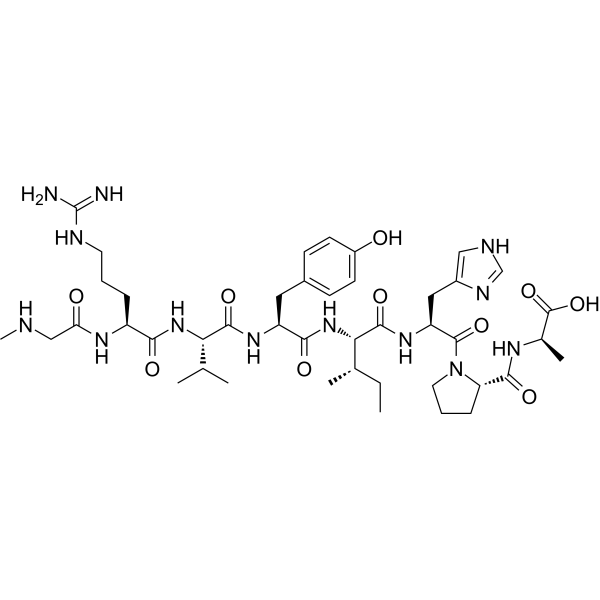
-
GC70068
TRV055
TRV055 is a G protein-biased agonist that selectively targets the type 1 angiotensin II receptor (AT1R) through Gq signaling. It effectively stimulates intracellular signal transduction mediated by Gq.
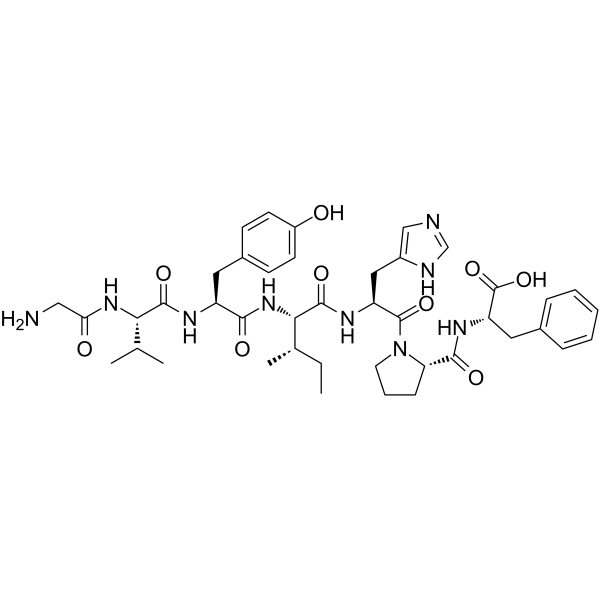
-
GC67768
TRV055 hydrochloride
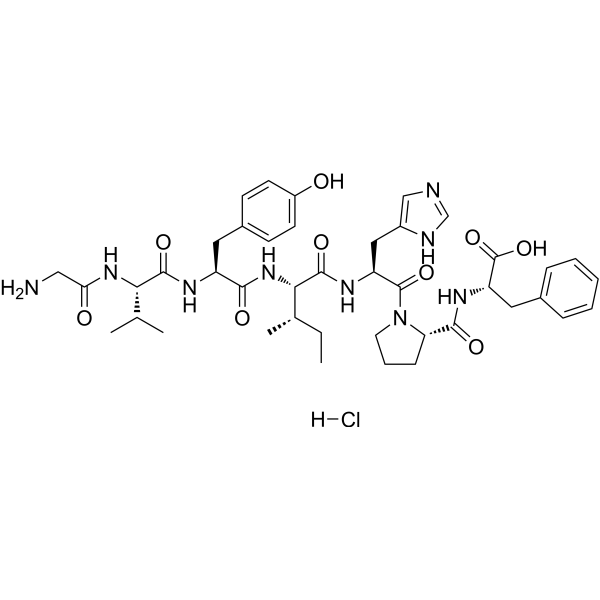
-
GC70069
TRV056
TRV056 is a ligand for the Gq-biased type 1 angiotensin II receptor (AT1R). TRV056 effectively stimulates cell signaling mediated by Gq. TRV056 can be used to develop Gq-biased AT1R agonists.
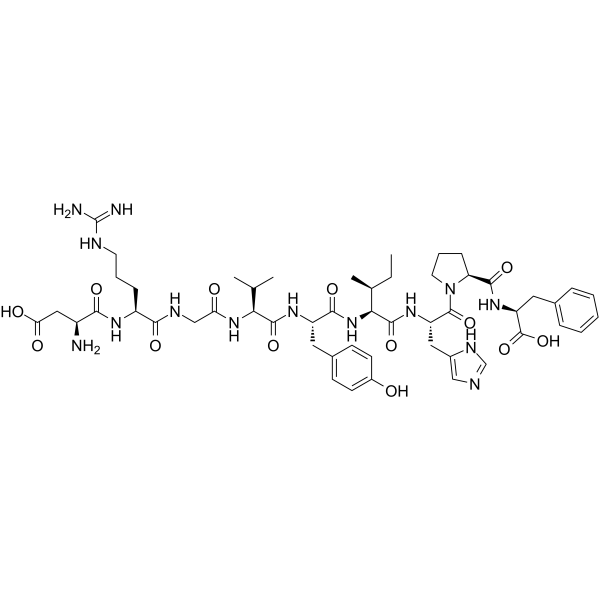
-
GC10765
Valsartan
Angiotensin II AT1 receptor antagonist
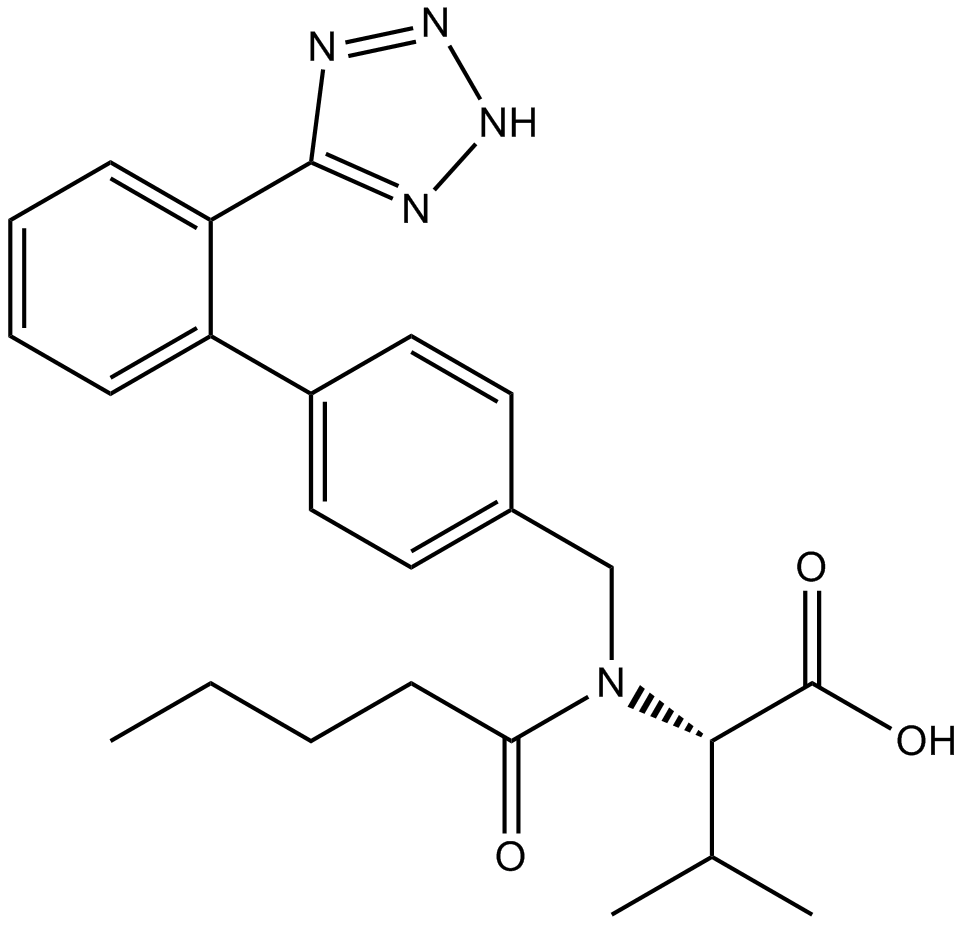
-
GC37884
Valsartan D9
Valsartan D9 (CGP 48933-d9) is deuterium labeled valsartan.
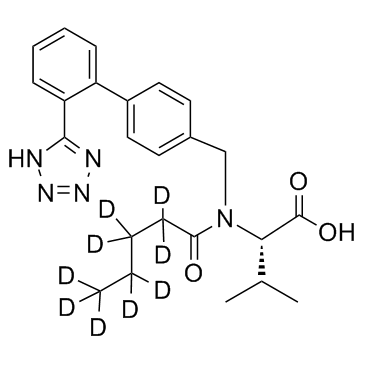
-
GC37954
YS-49
YS-49 is a PI3K/Akt (a downstream target of RhoA) activator, to reduce RhoA/PTEN activation in the 3-methylcholanthrene-treated cells.
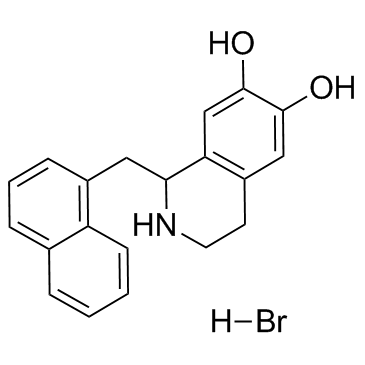
-
GC37955
YS-49 monohydrate
YS-49 (monohydrate) is a PI3K/Akt (a downstream target of RhoA) activator, to reduce RhoA/PTEN activation in the 3-methylcholanthrene-treated cells.
